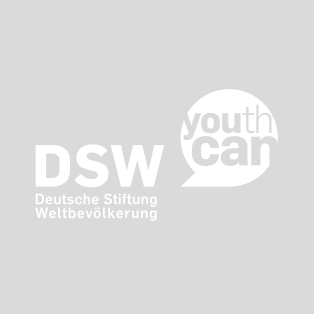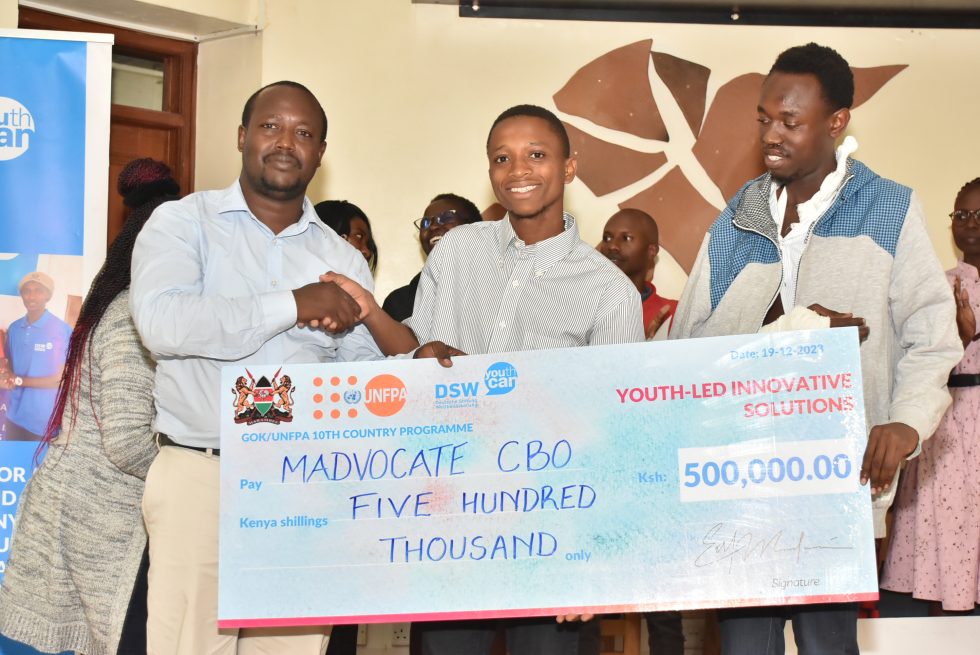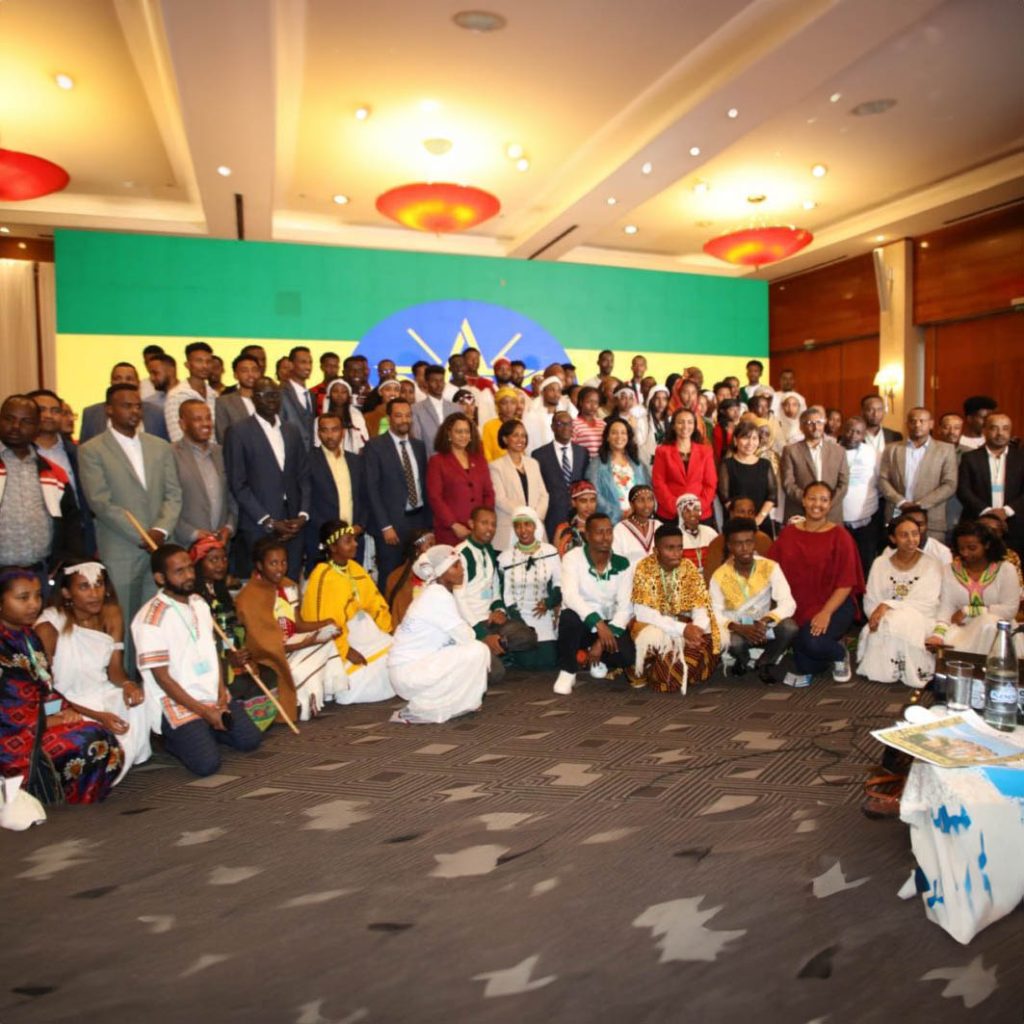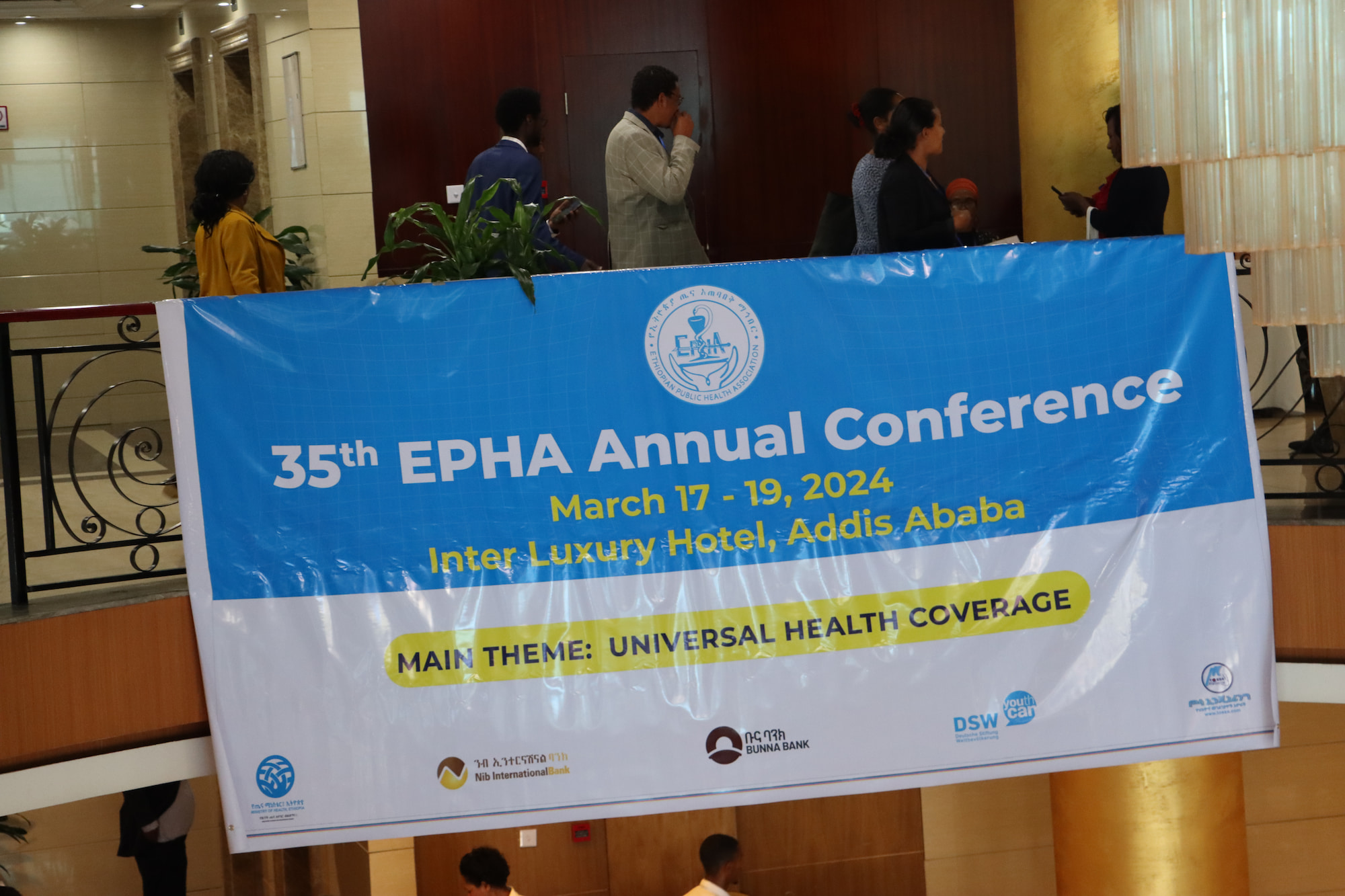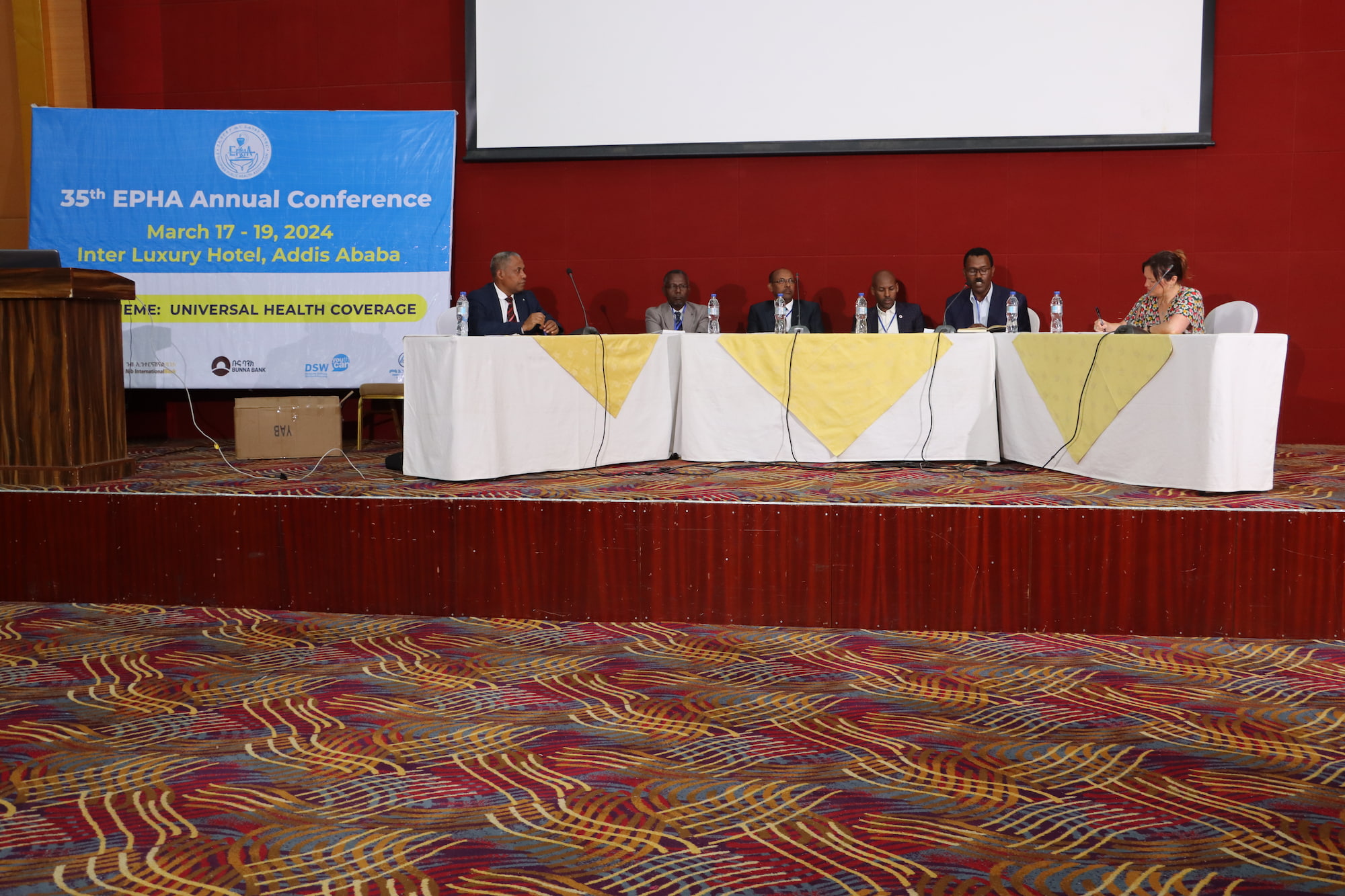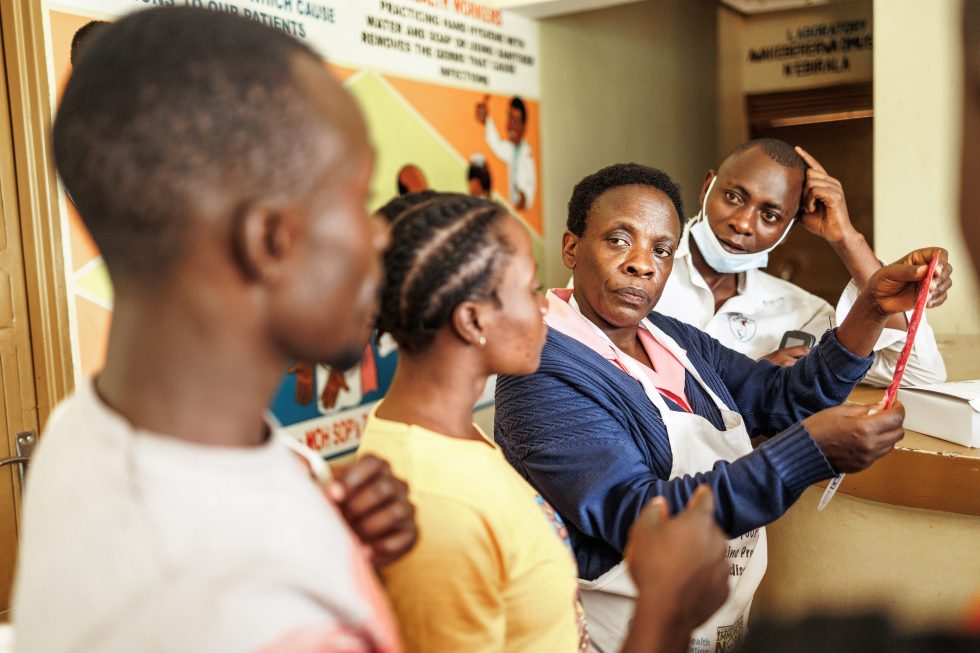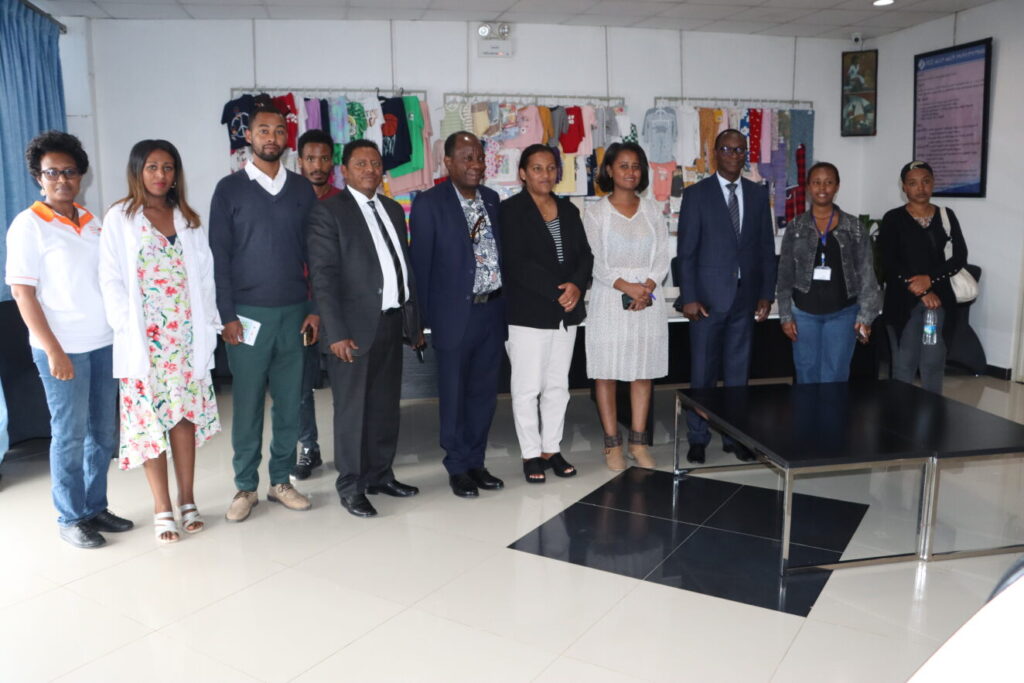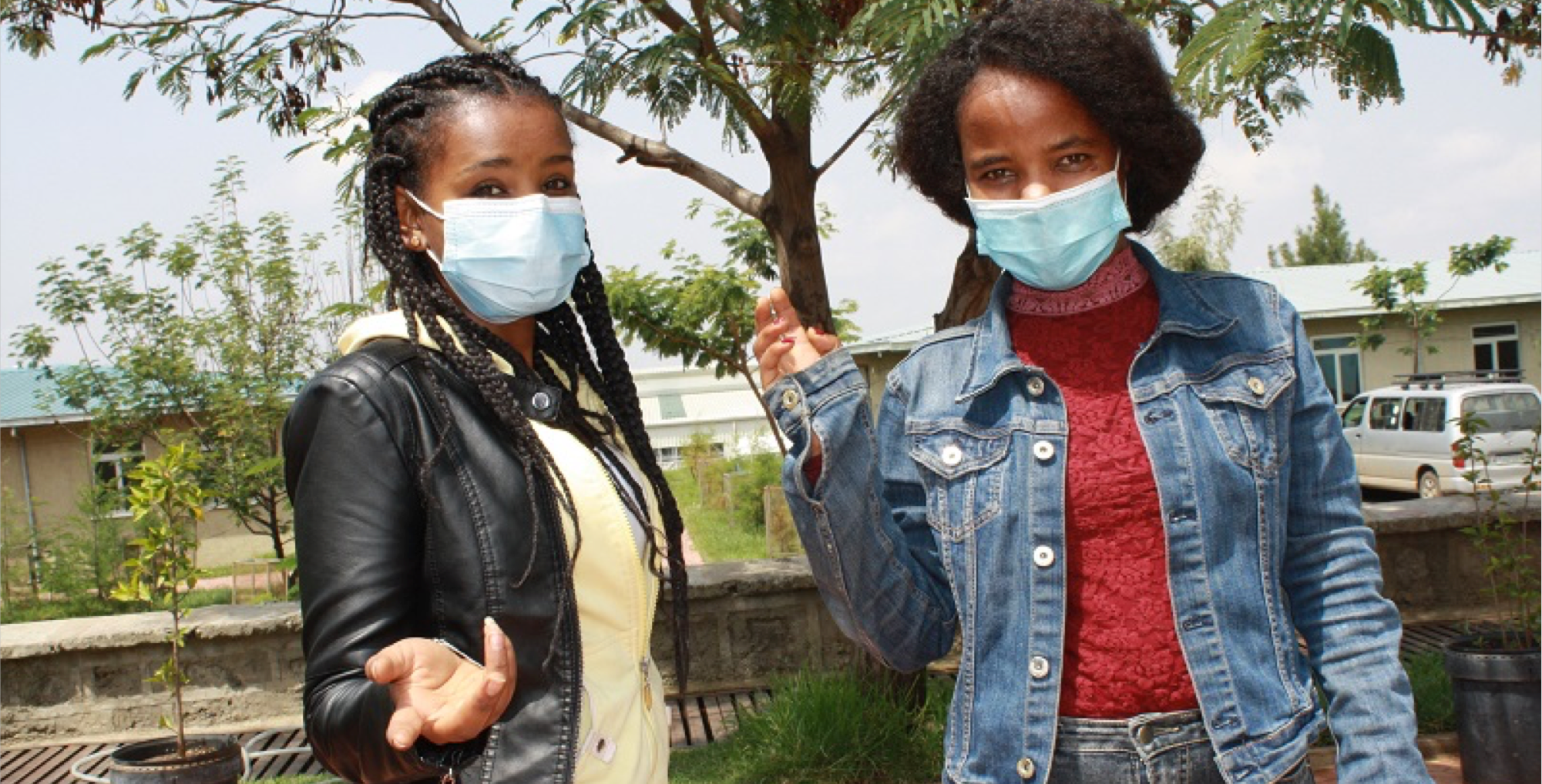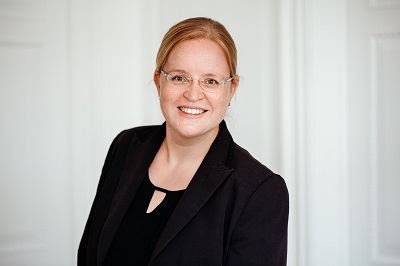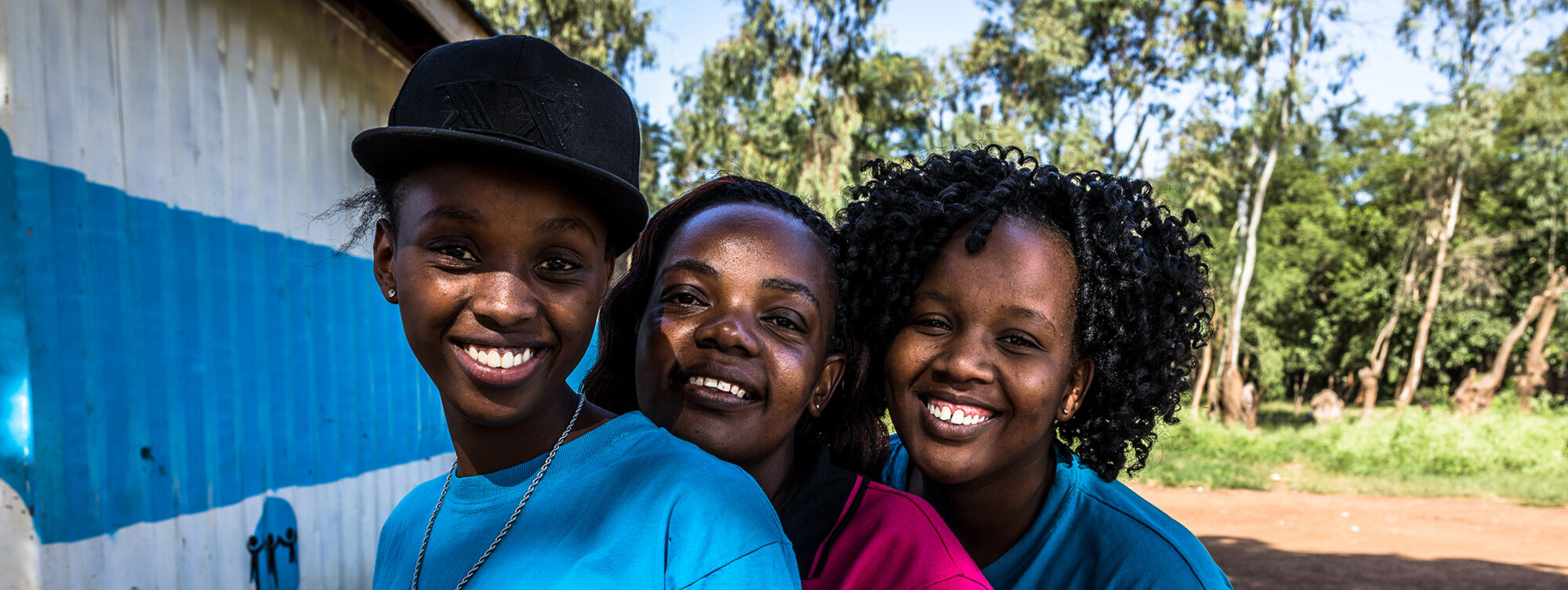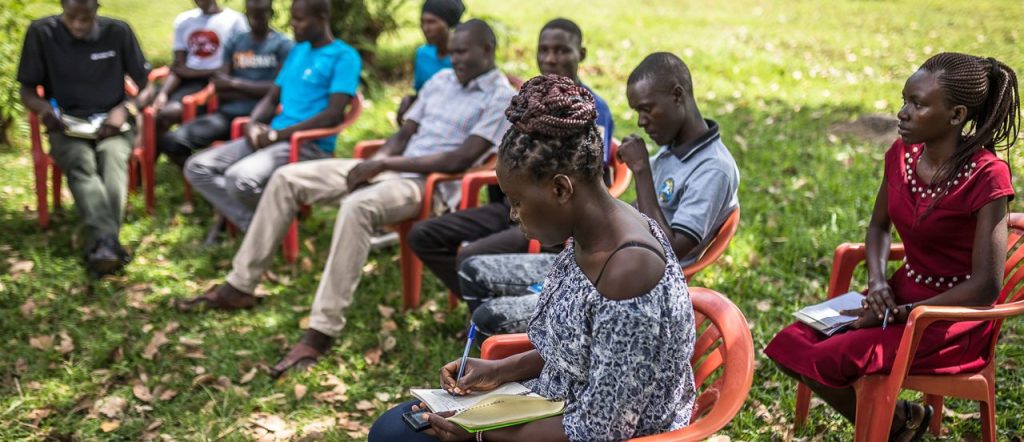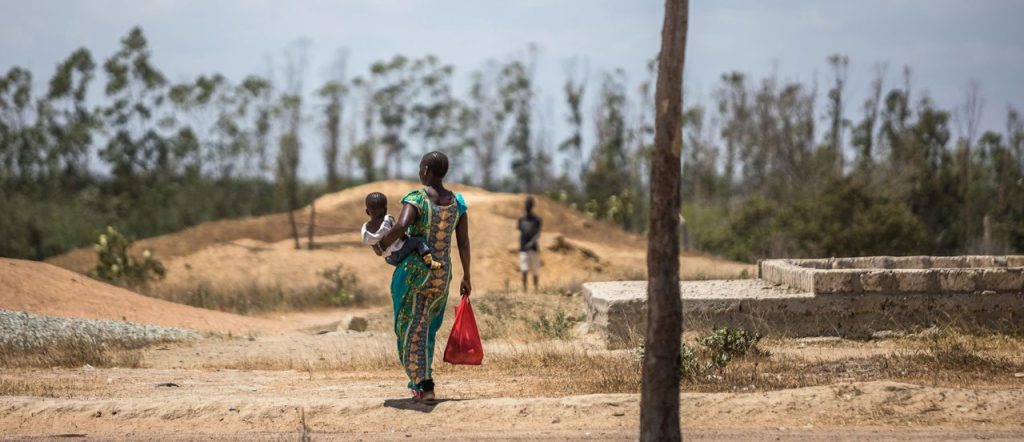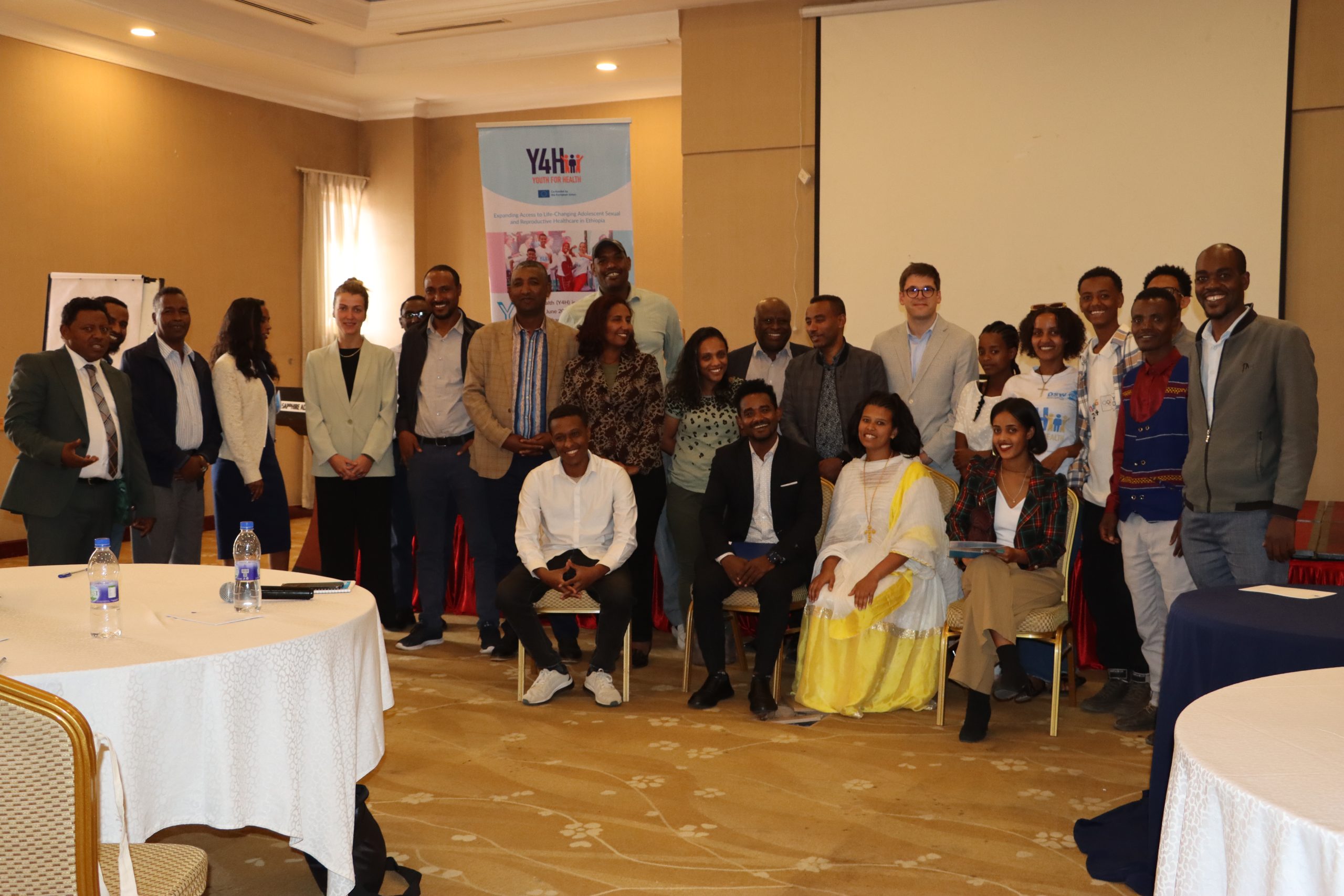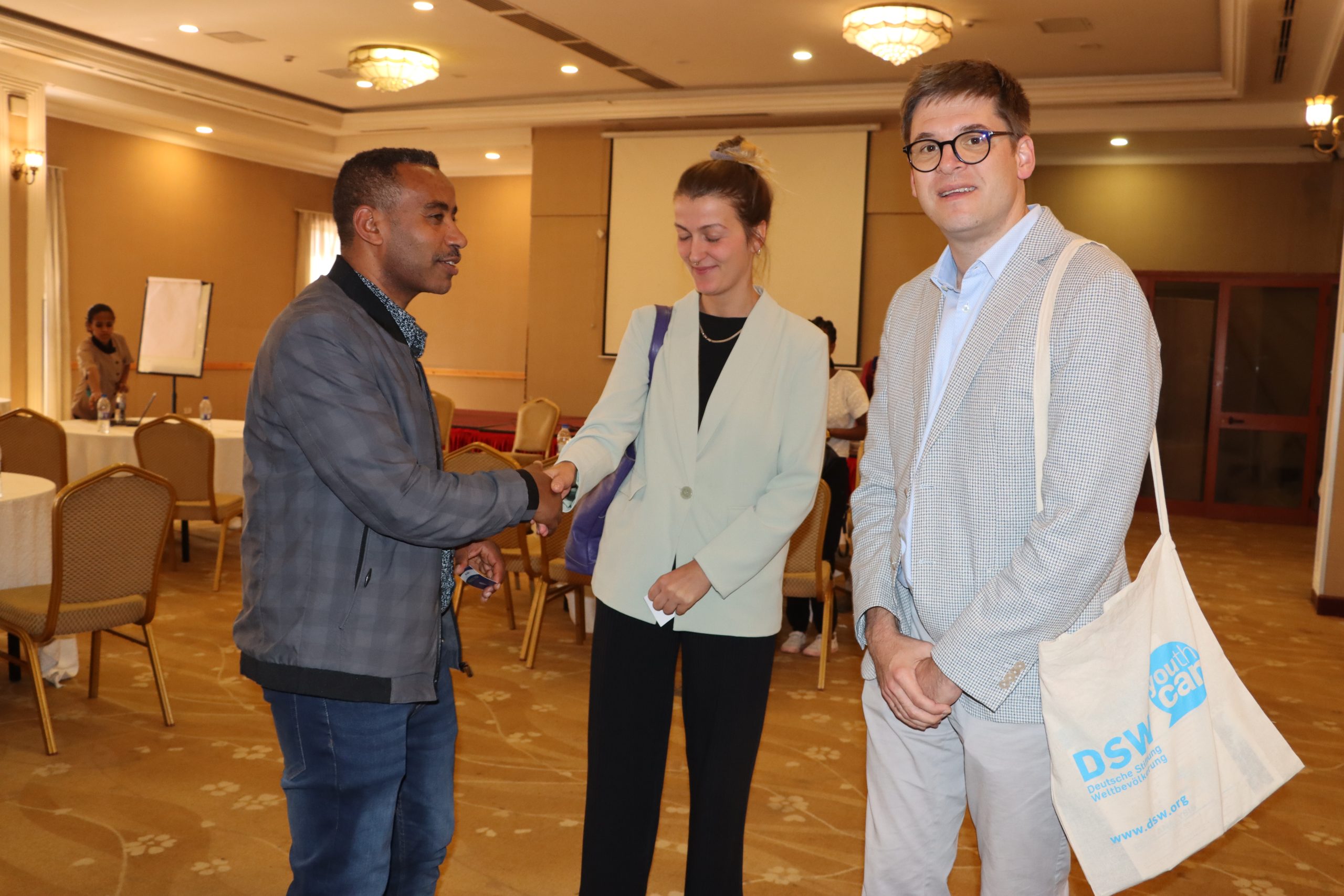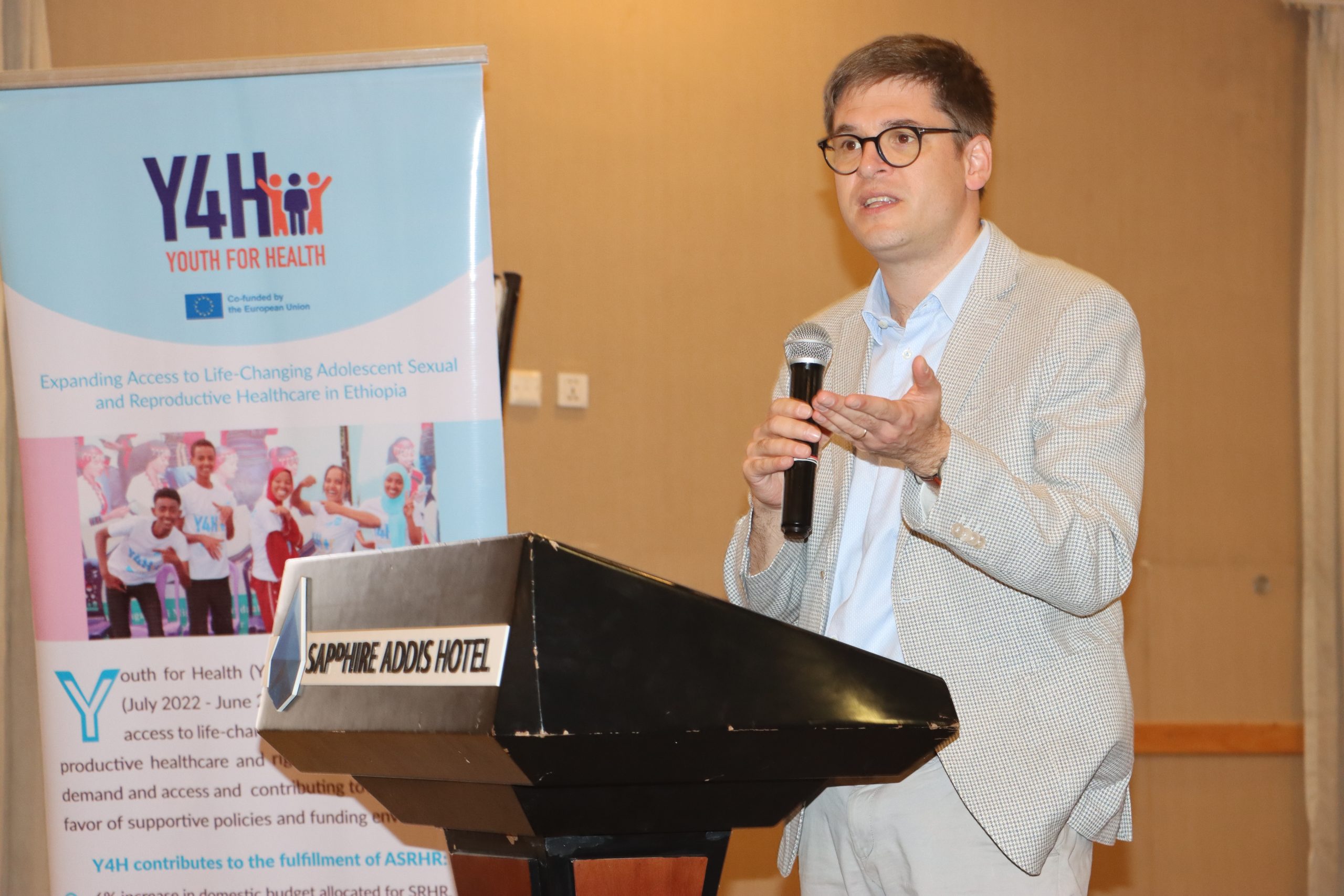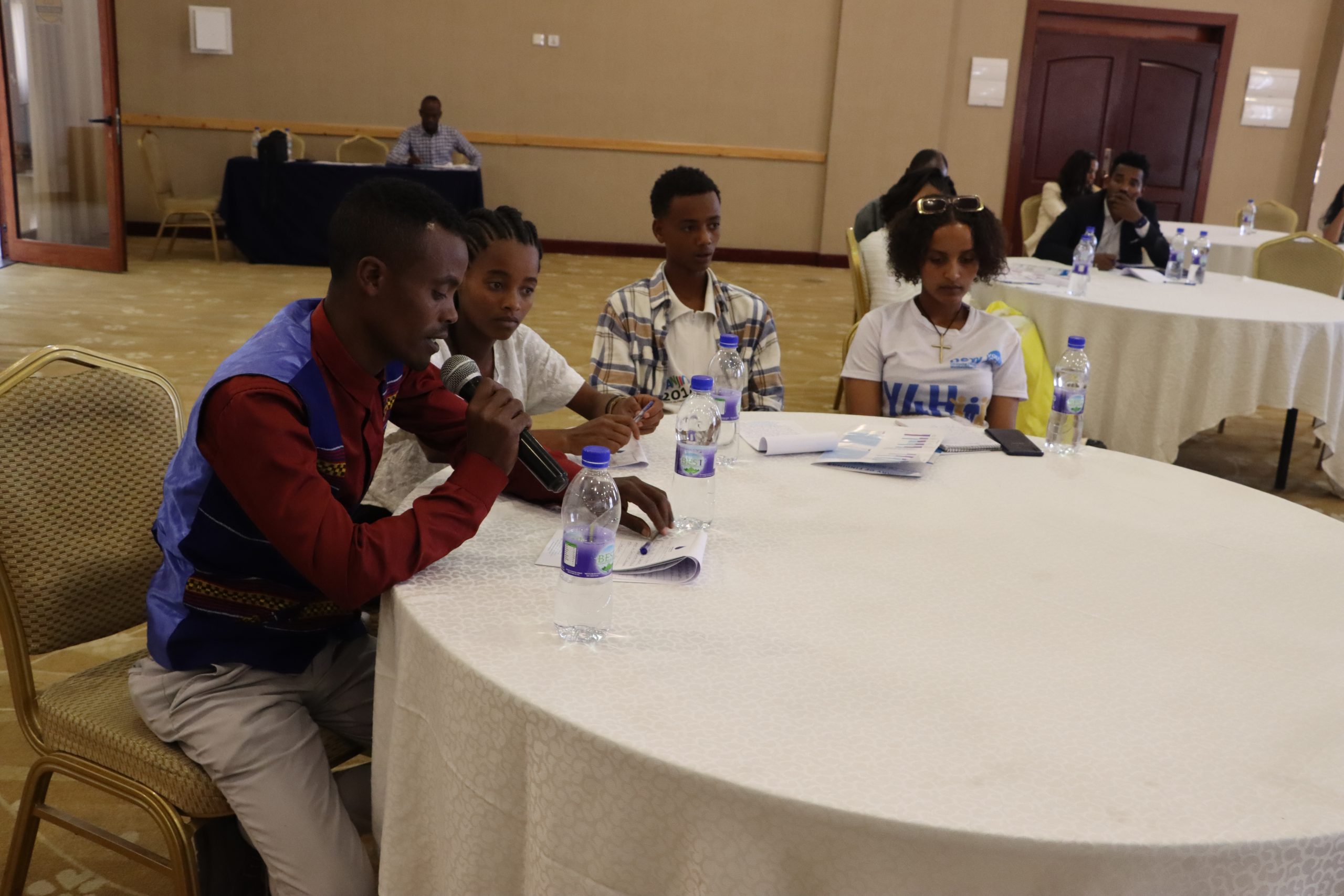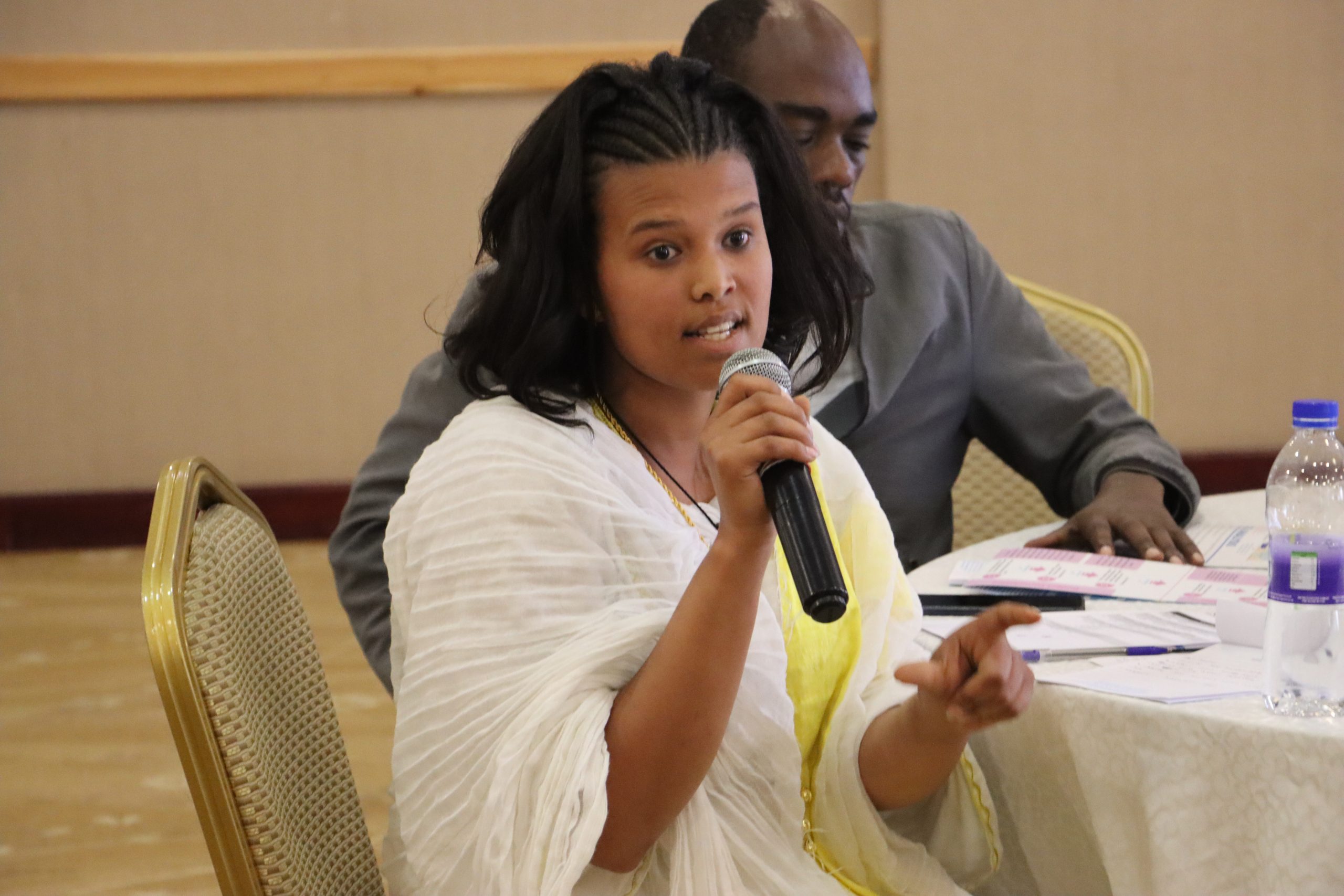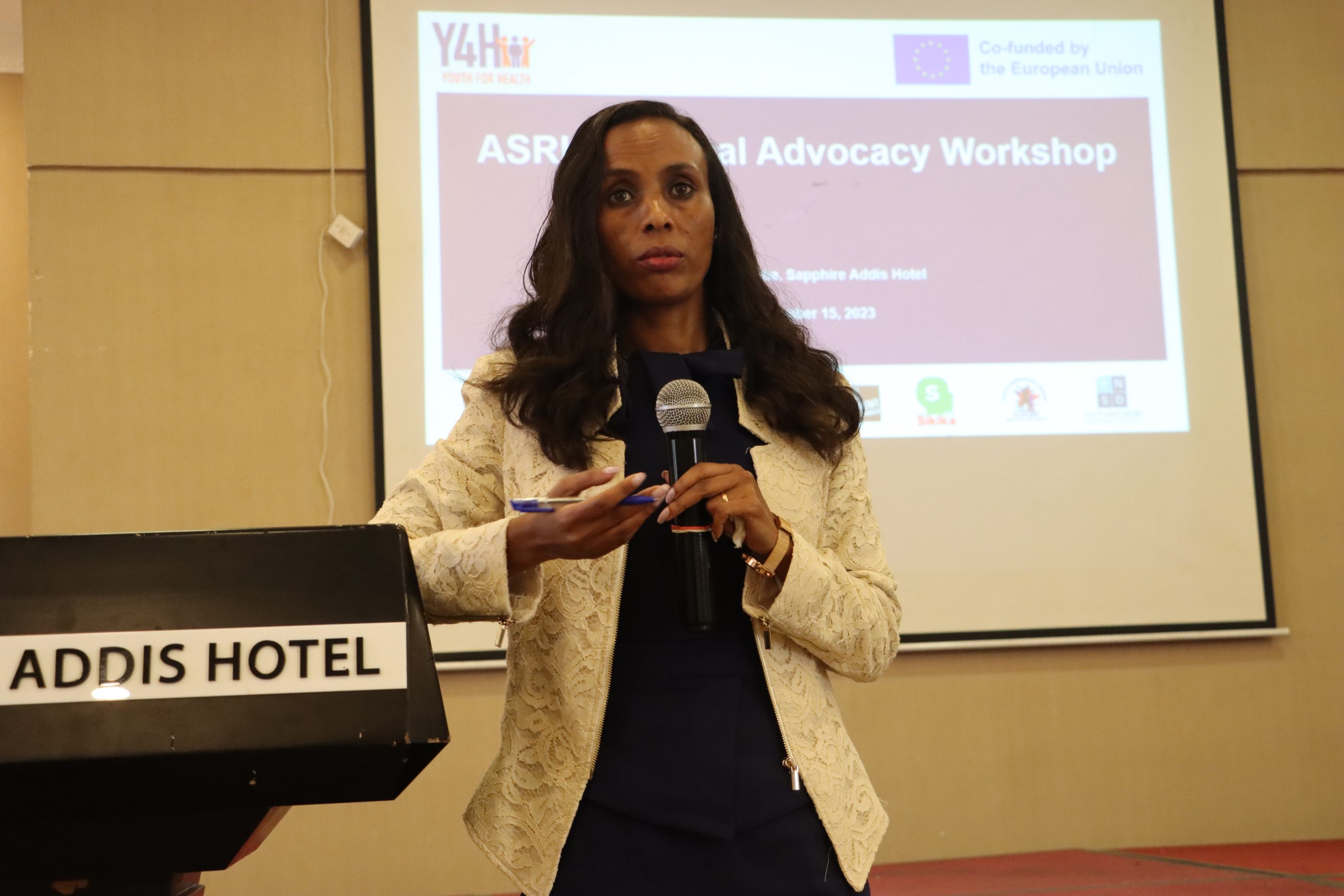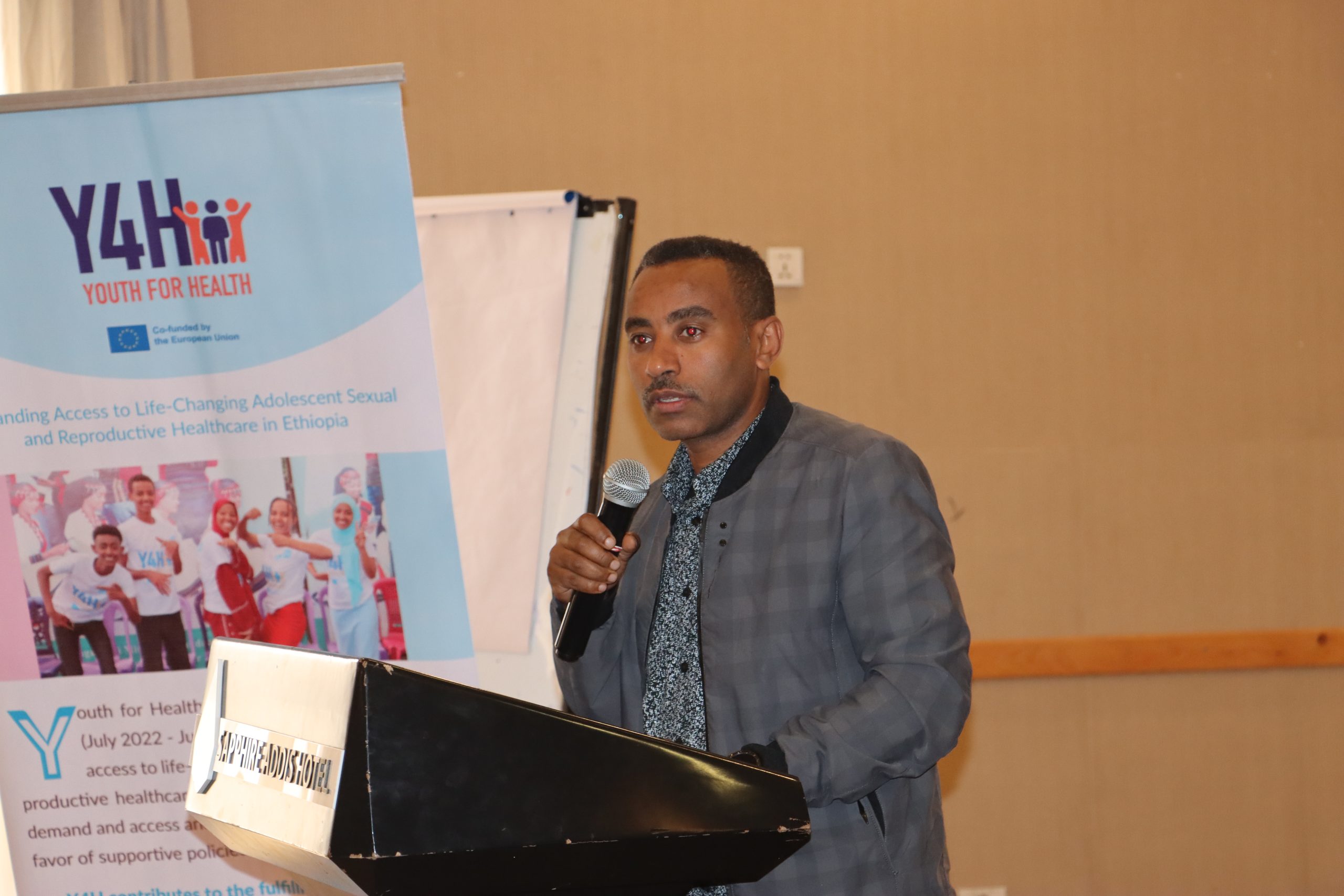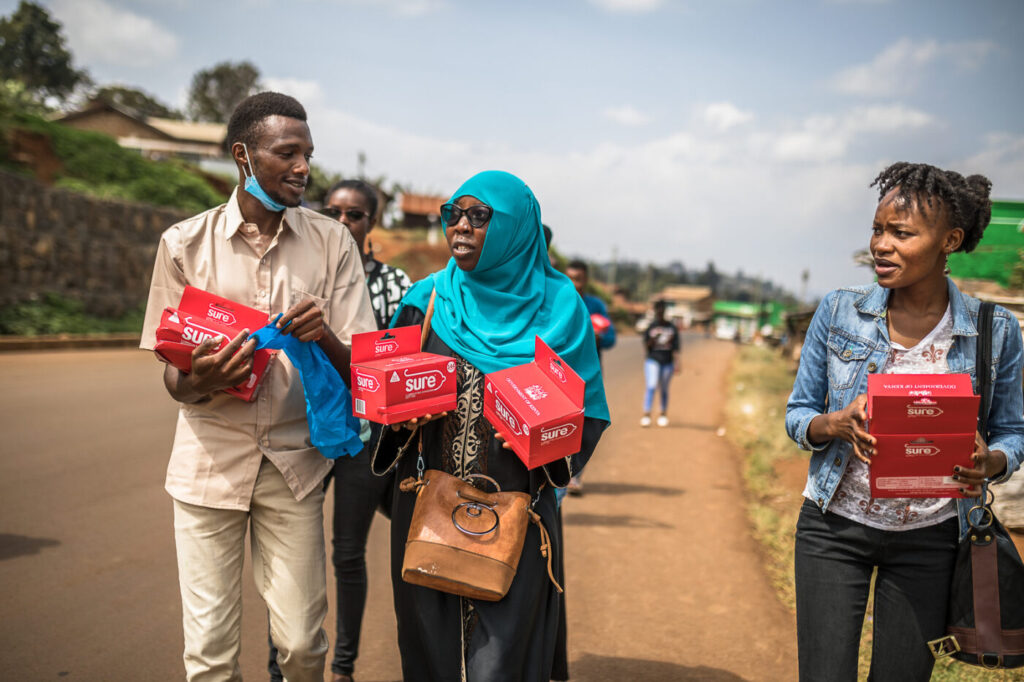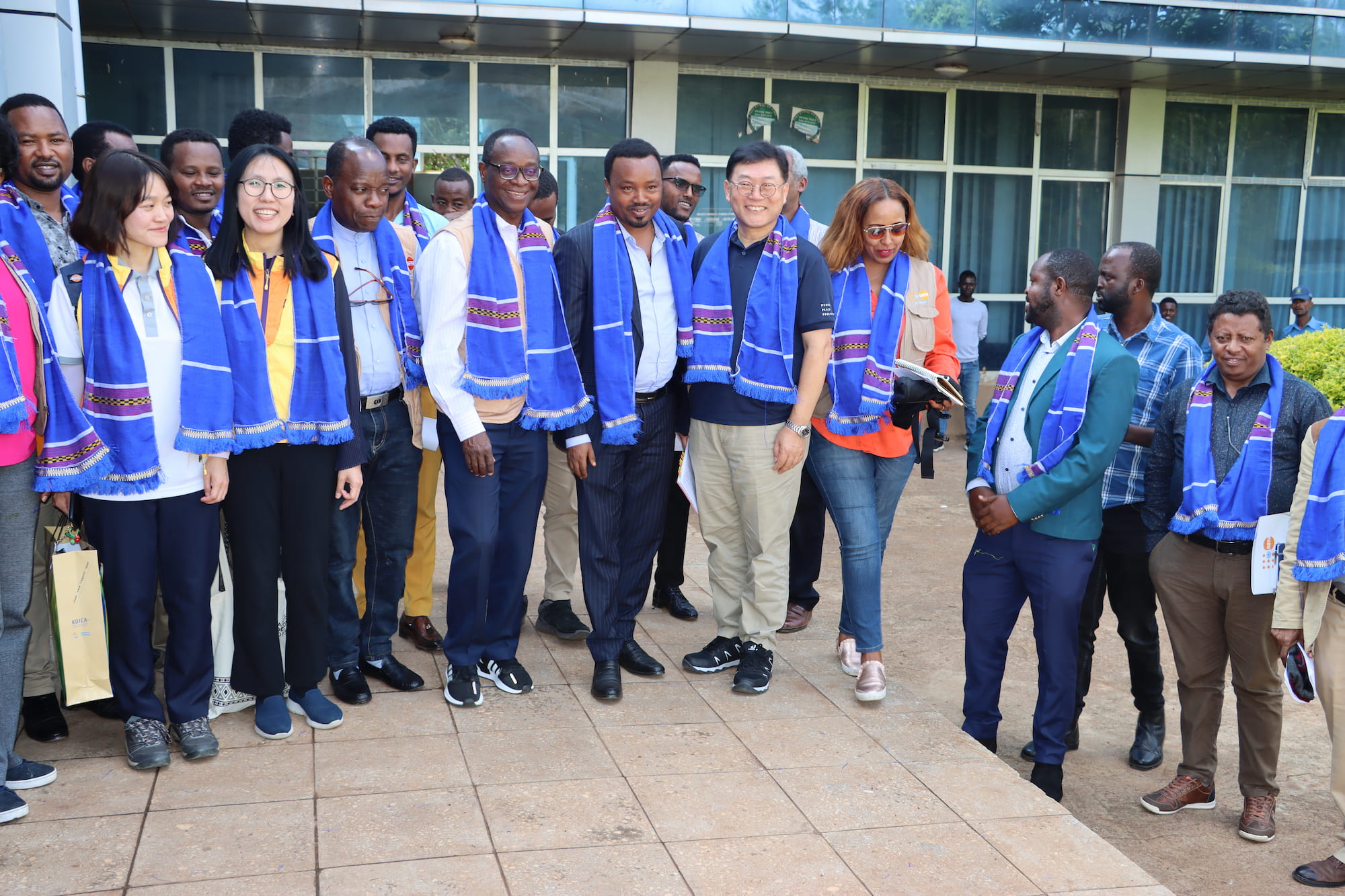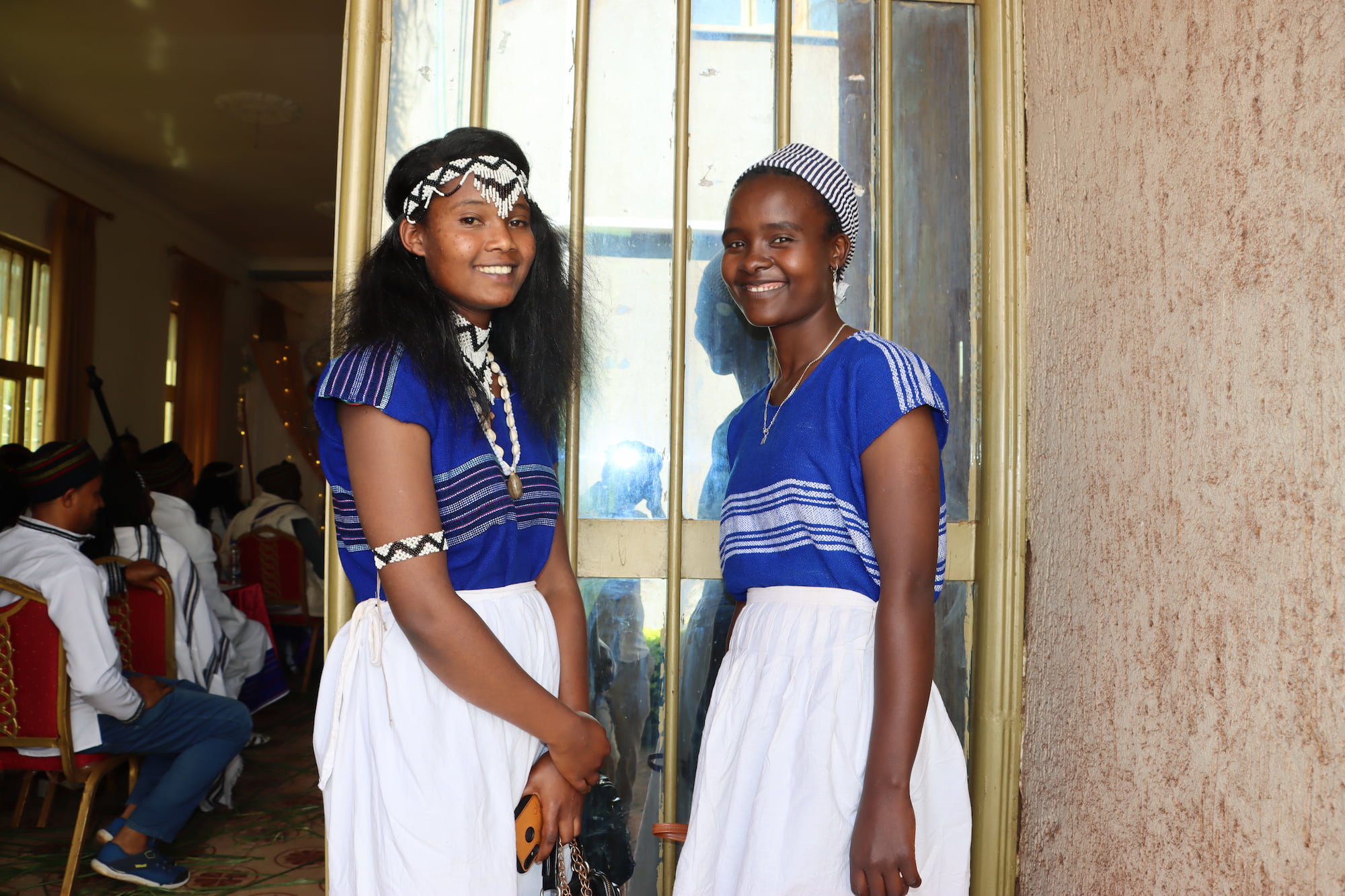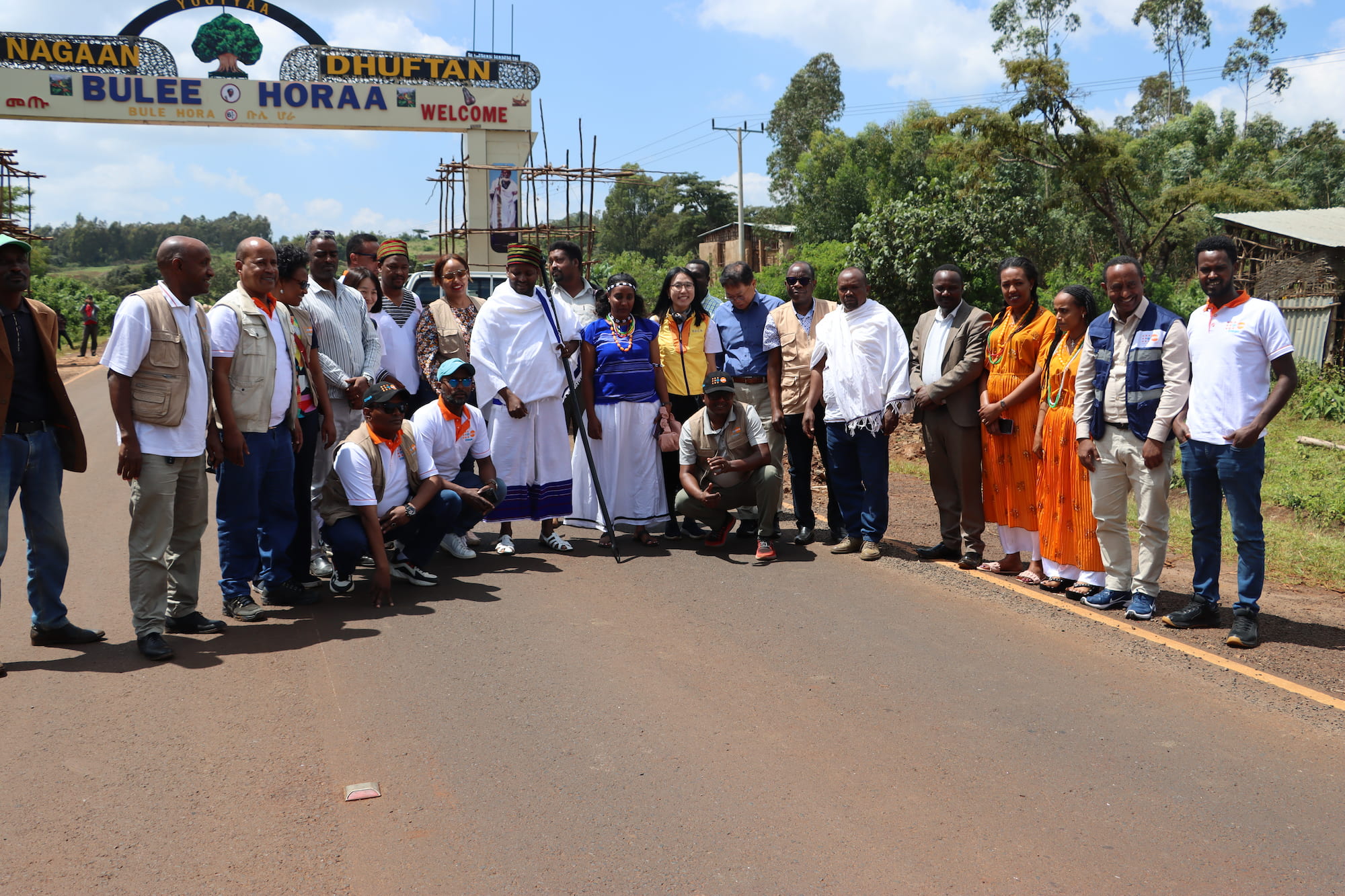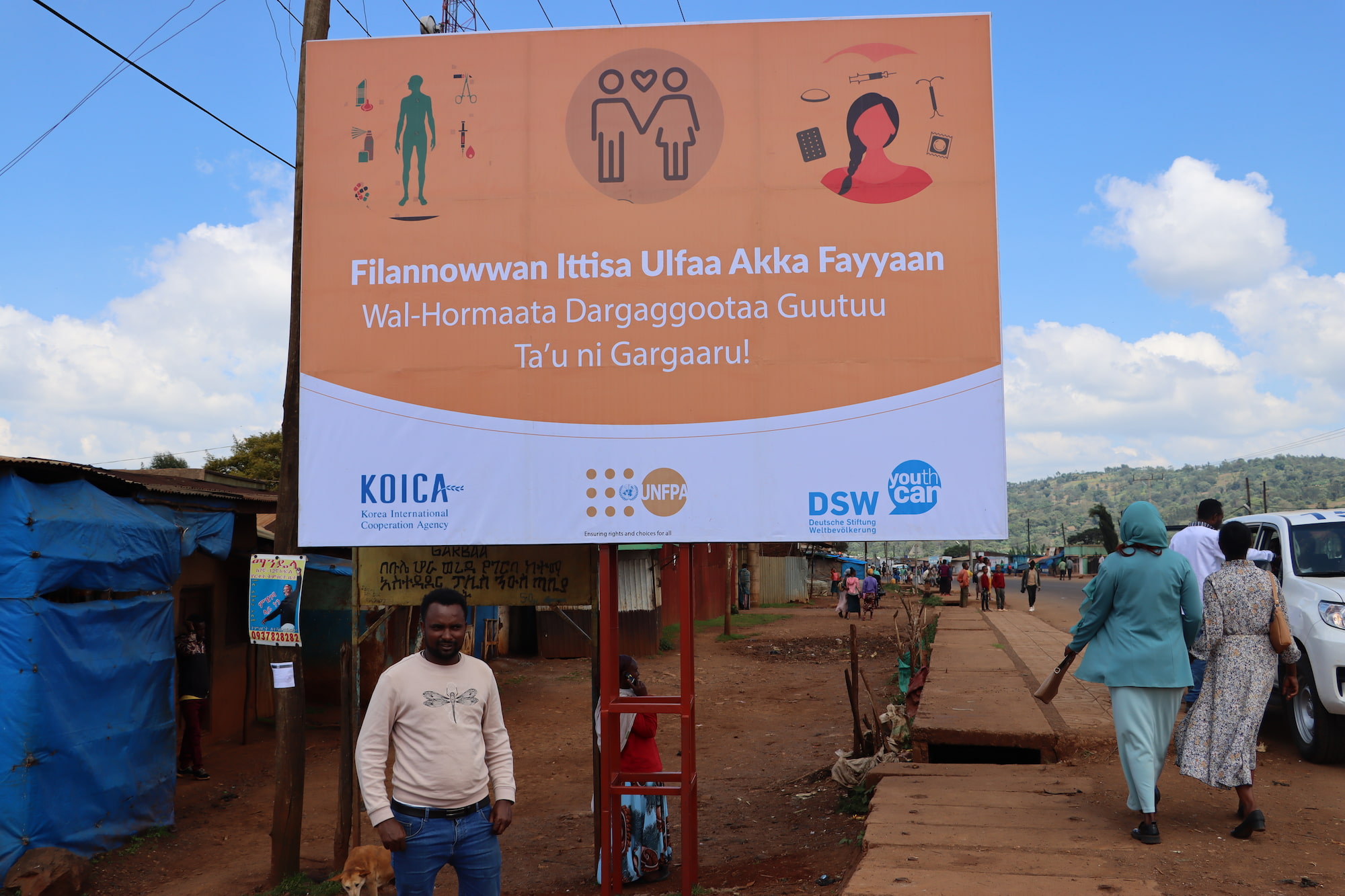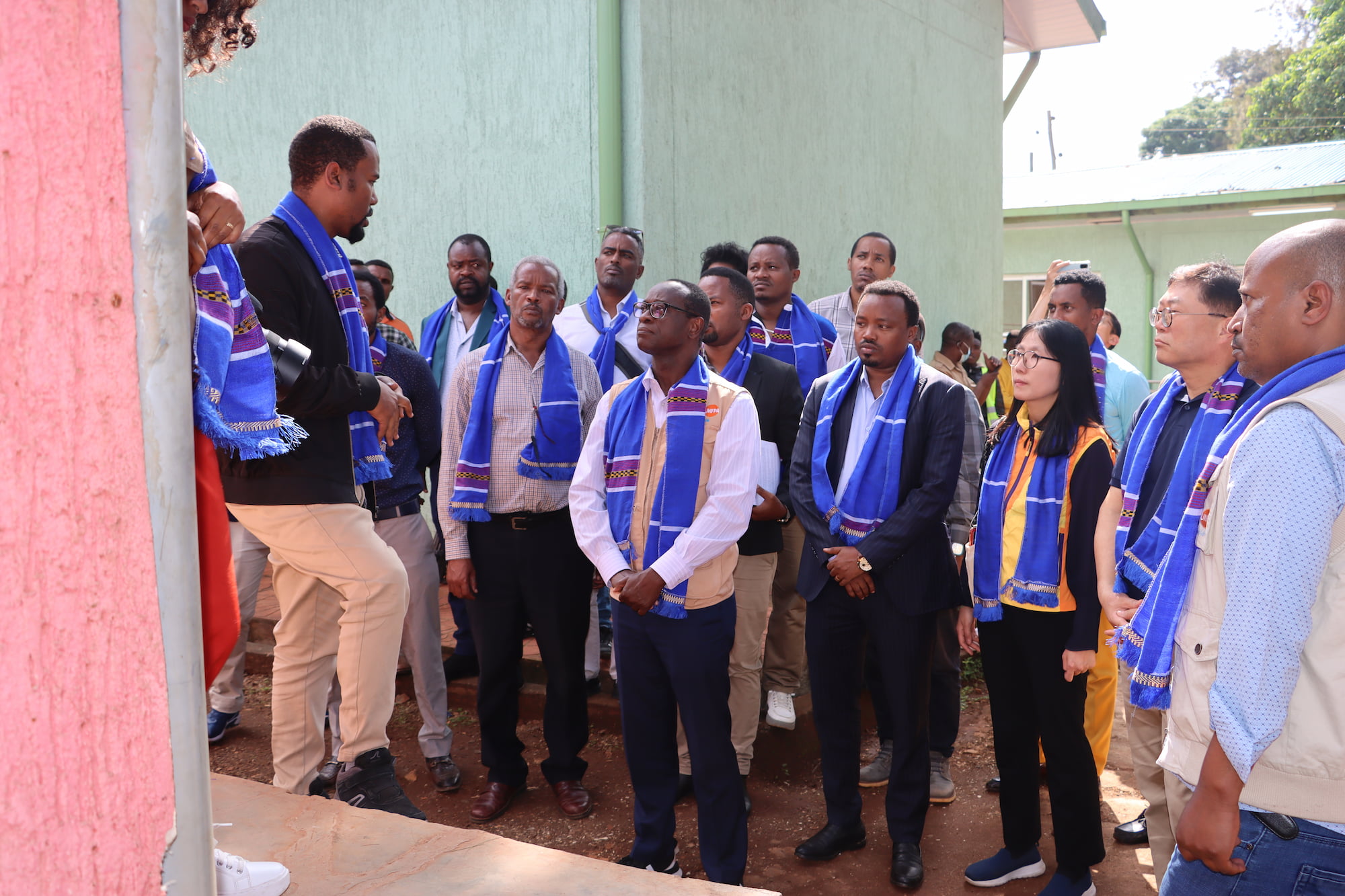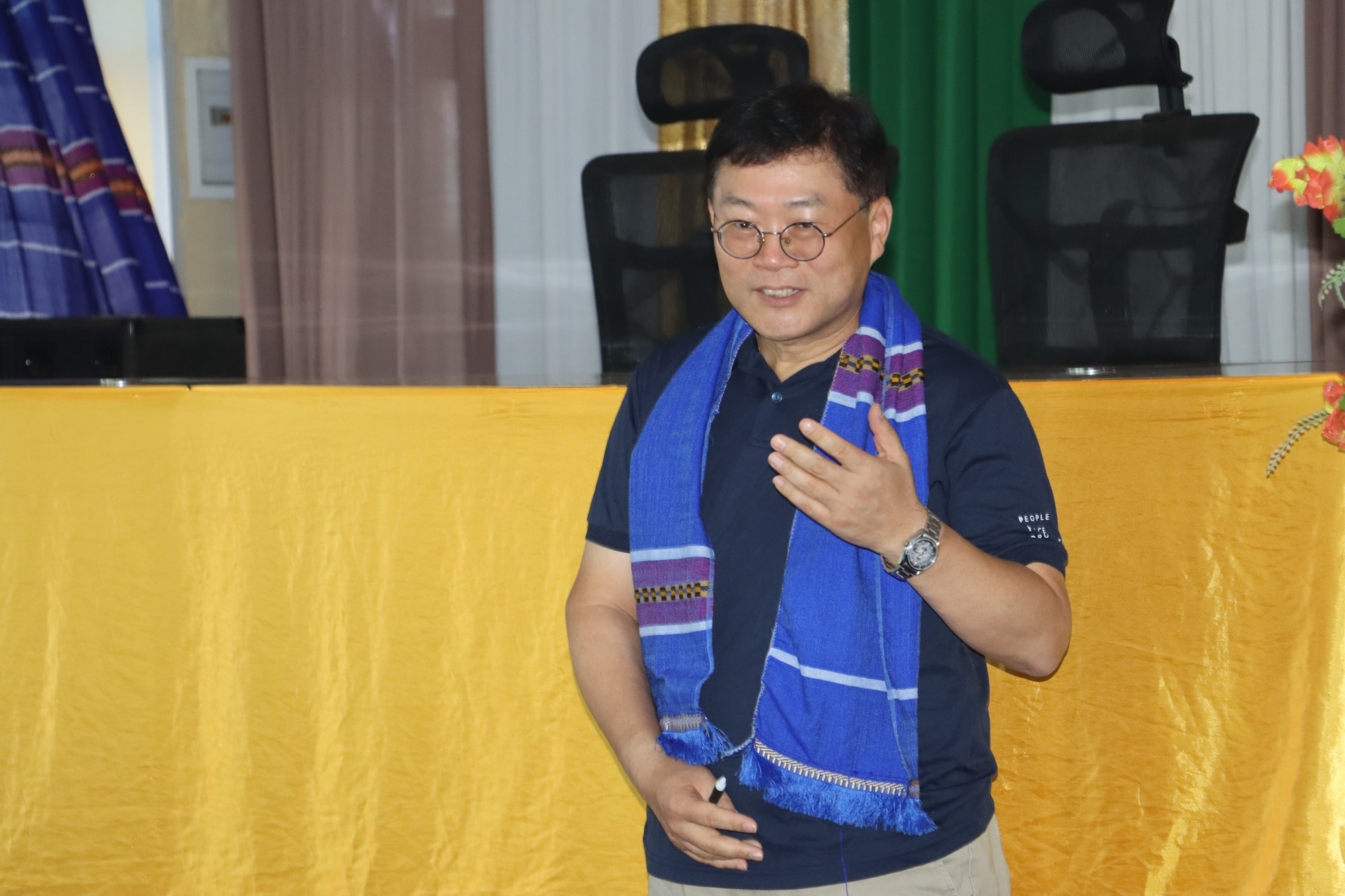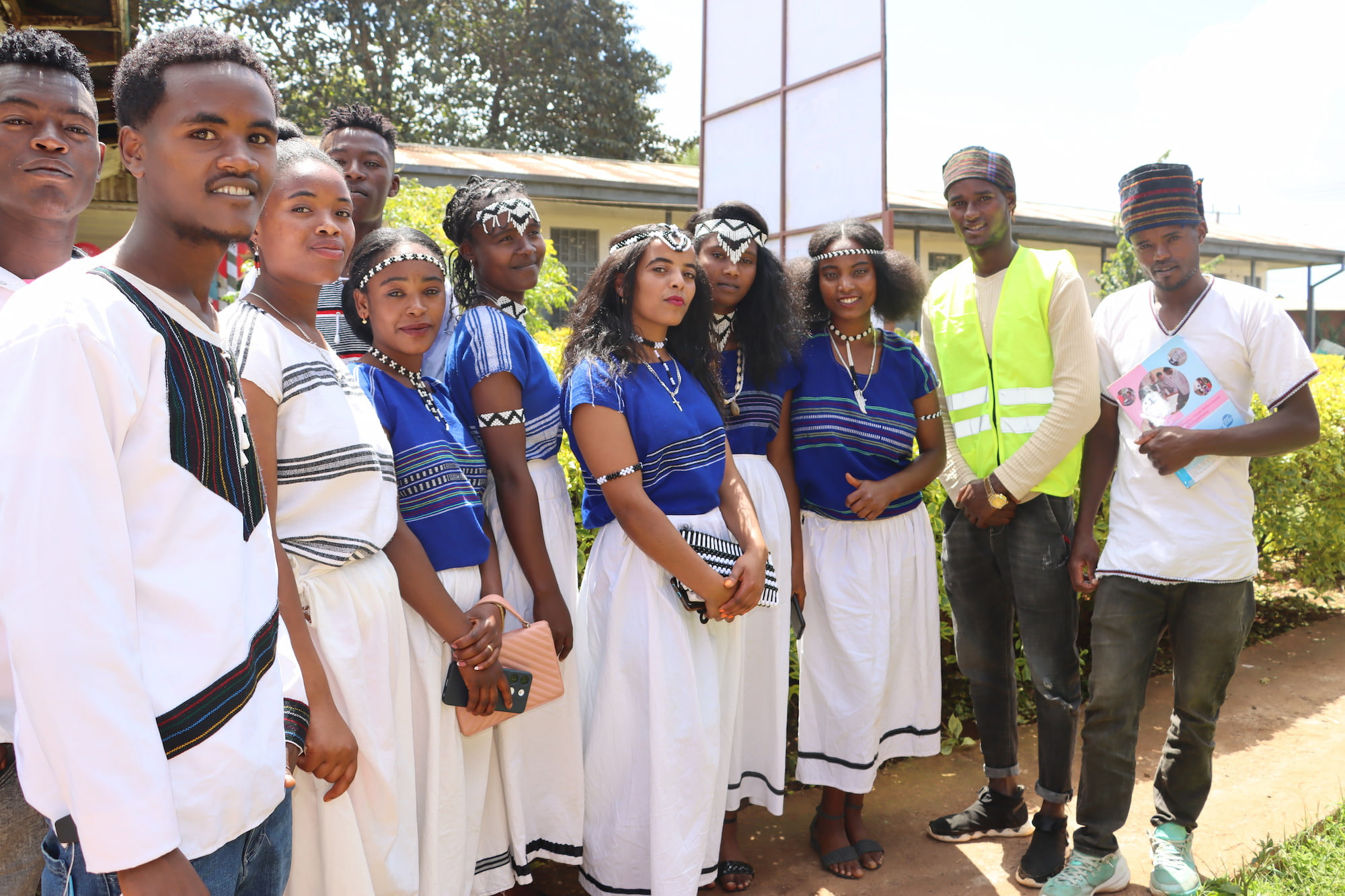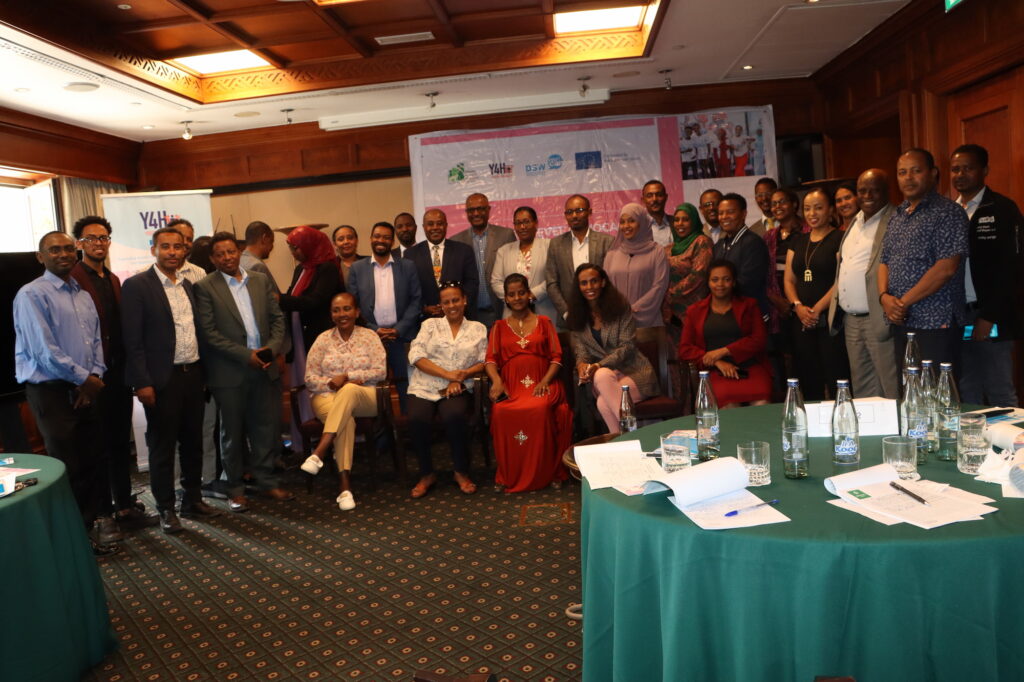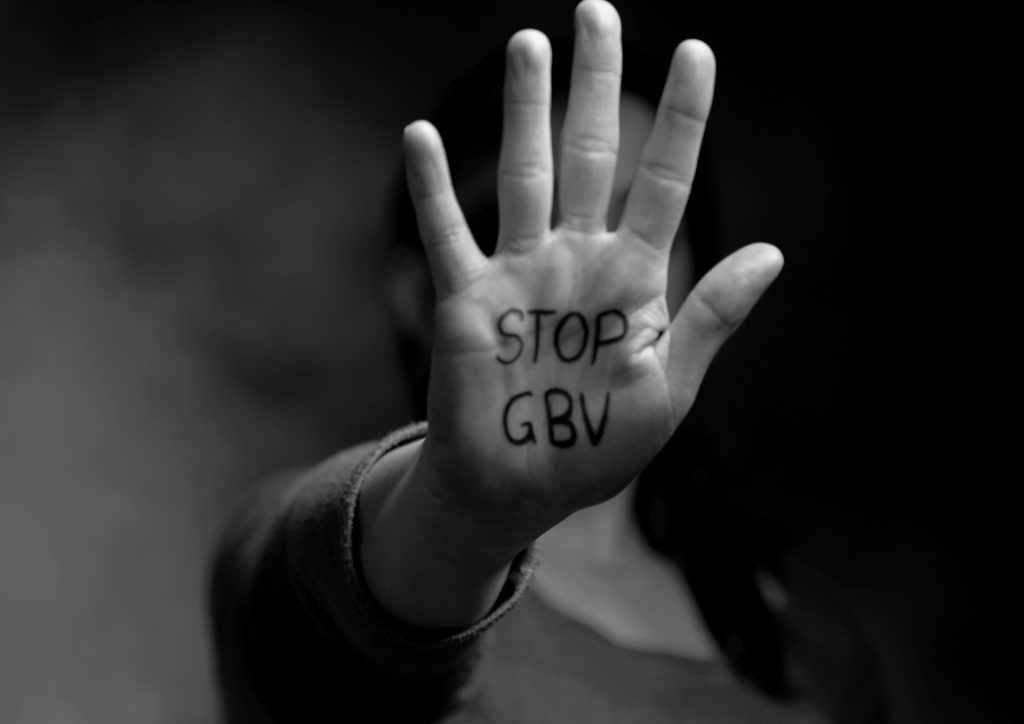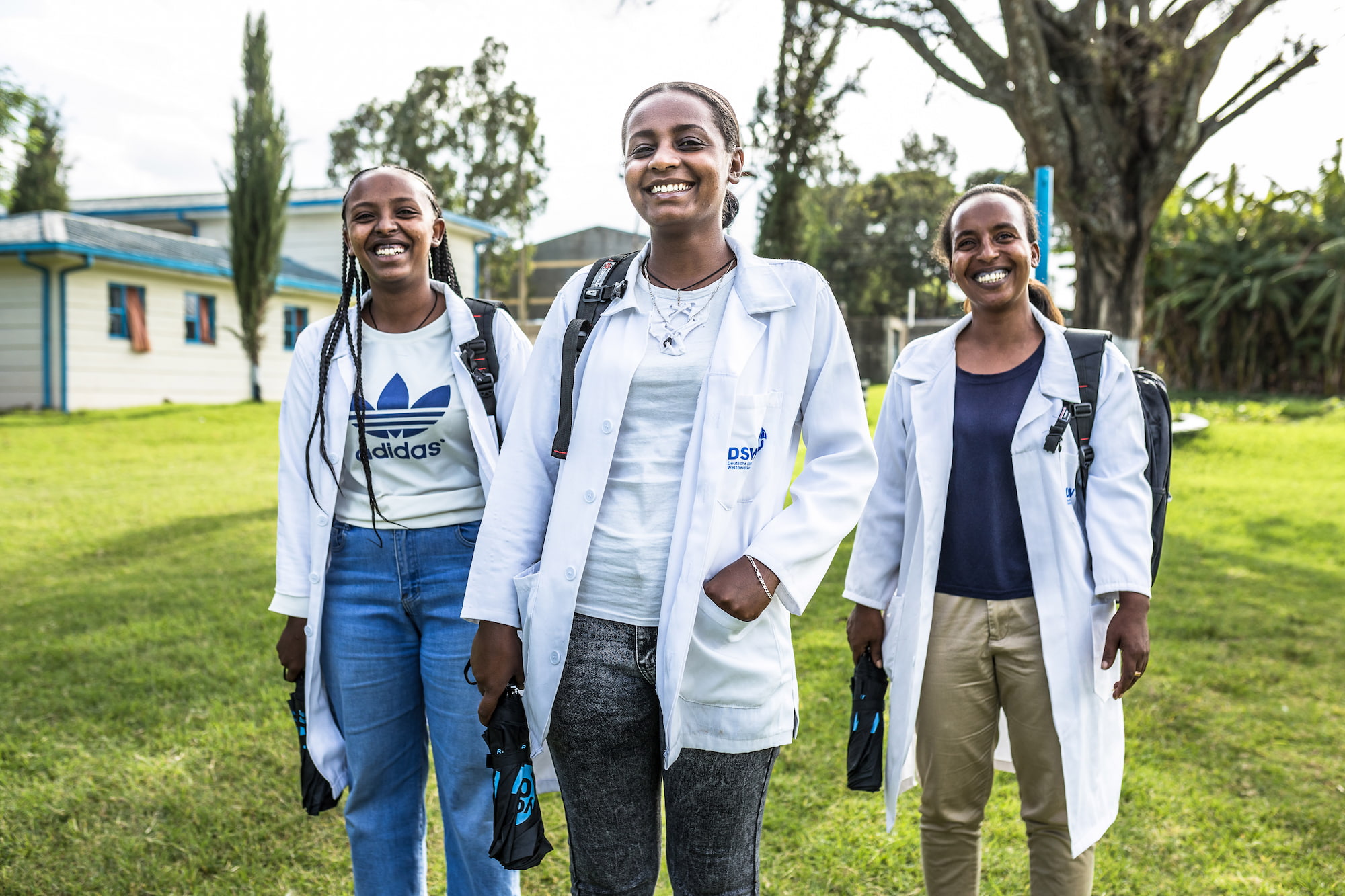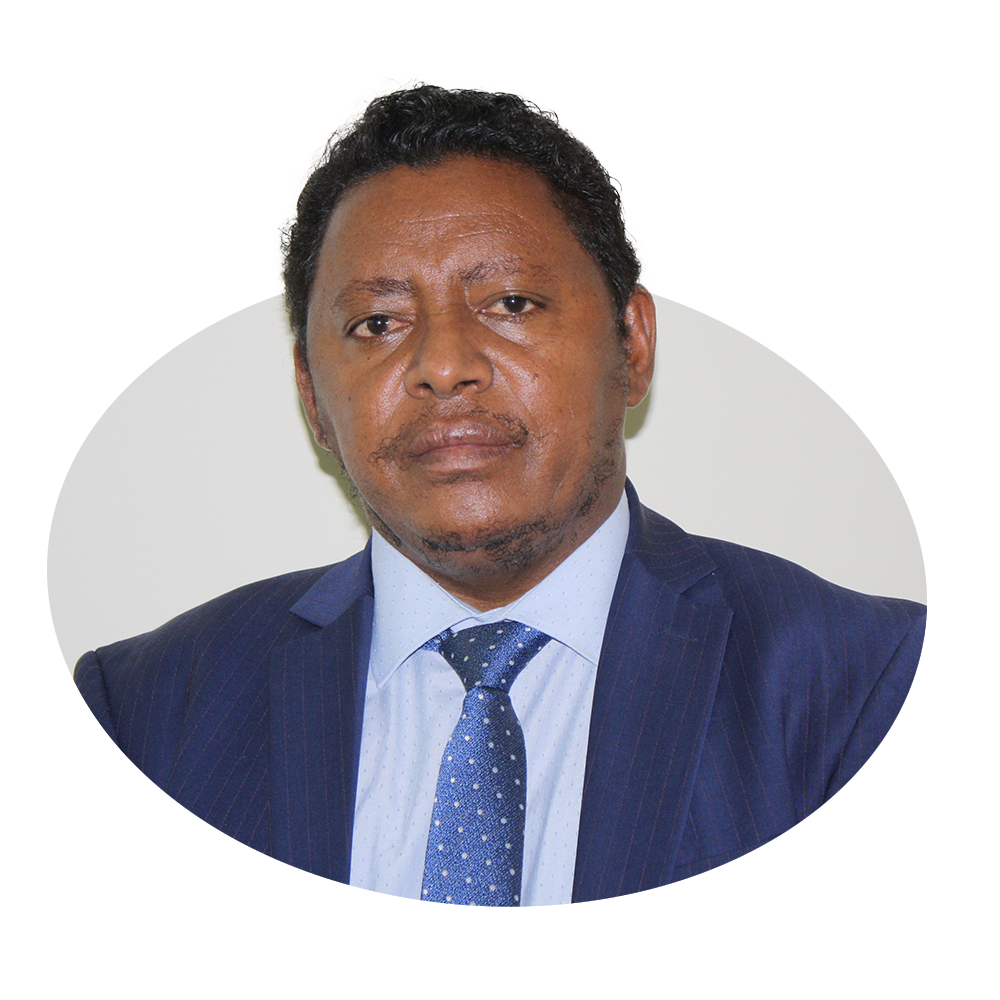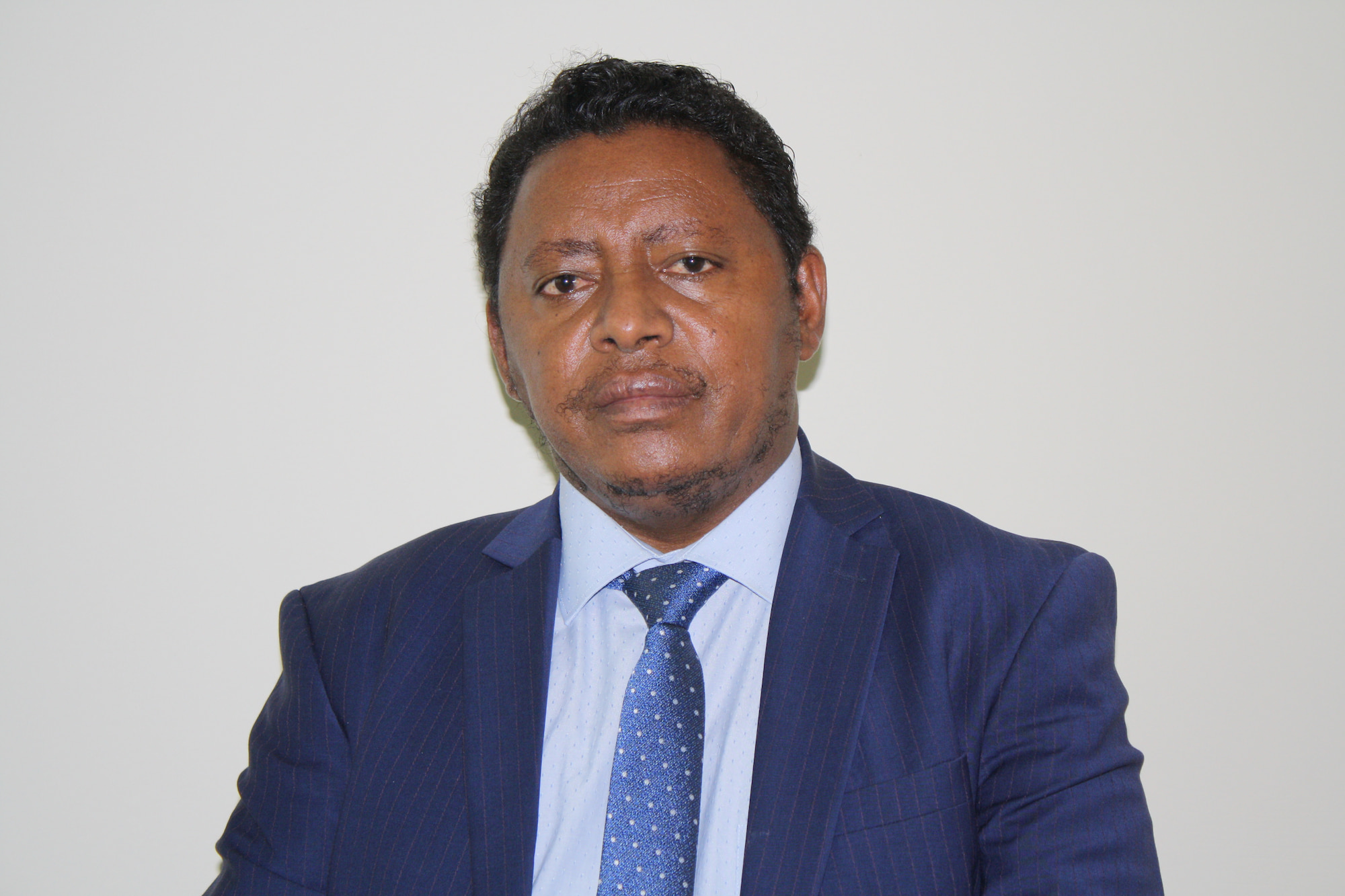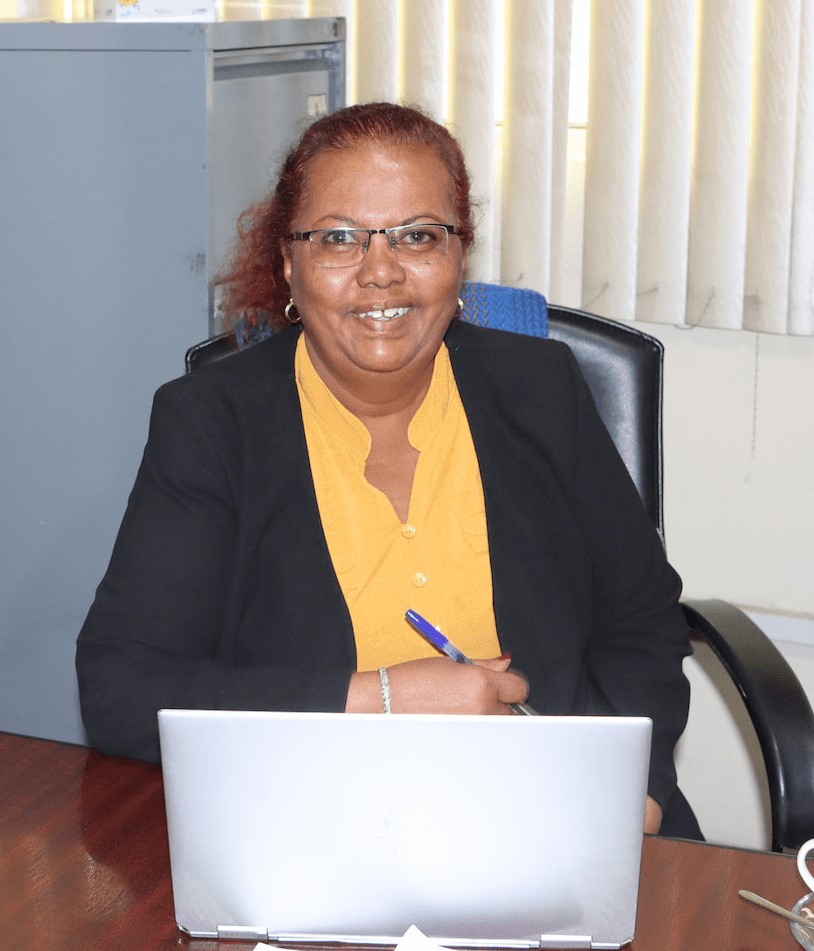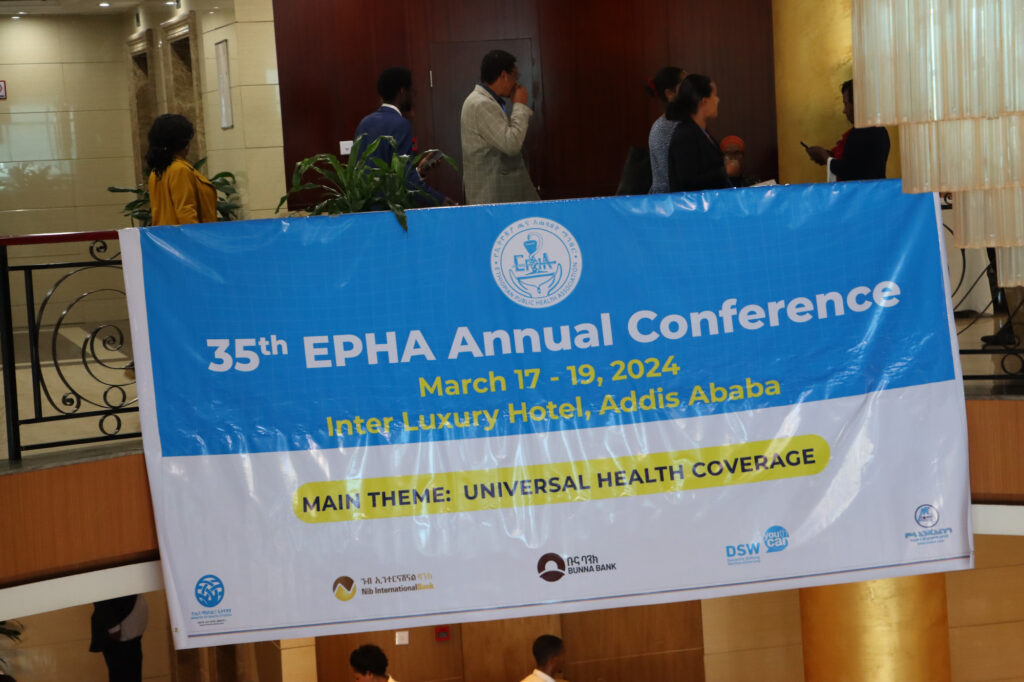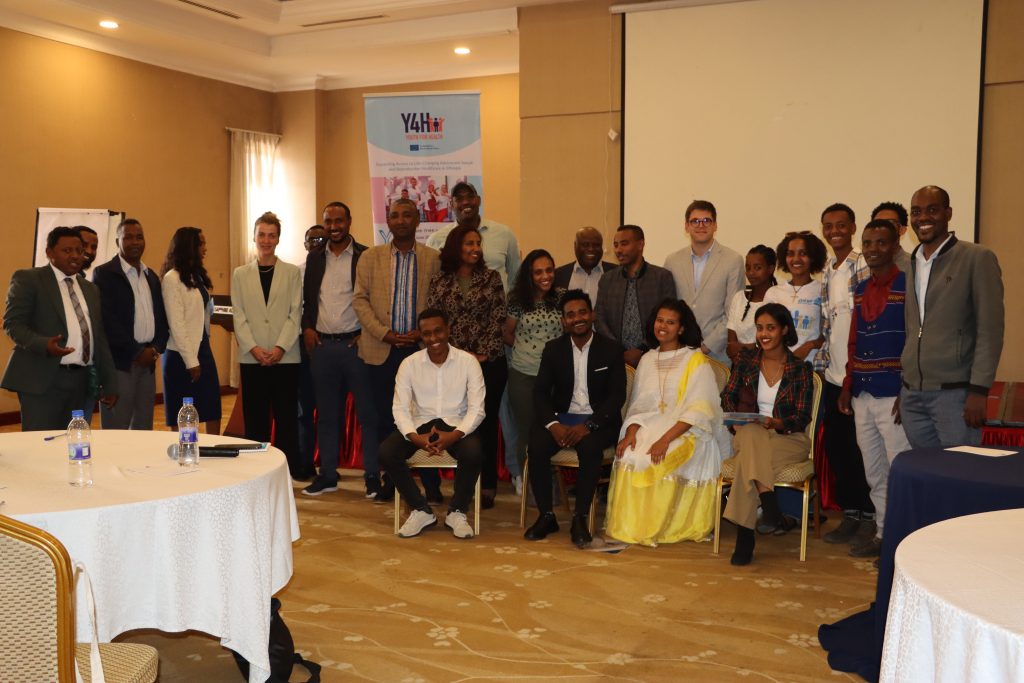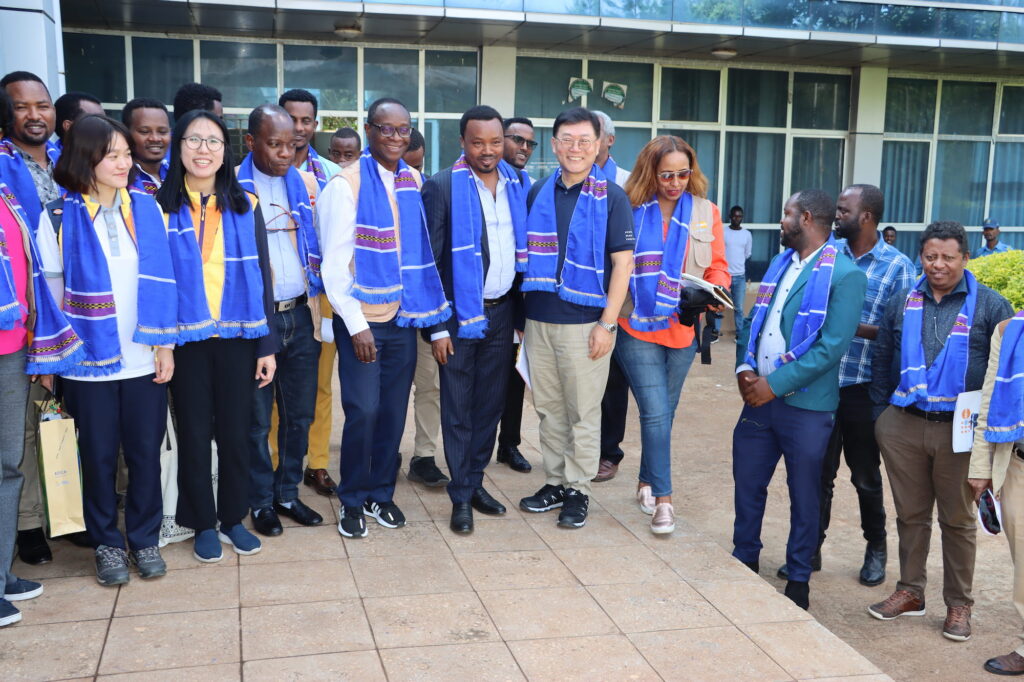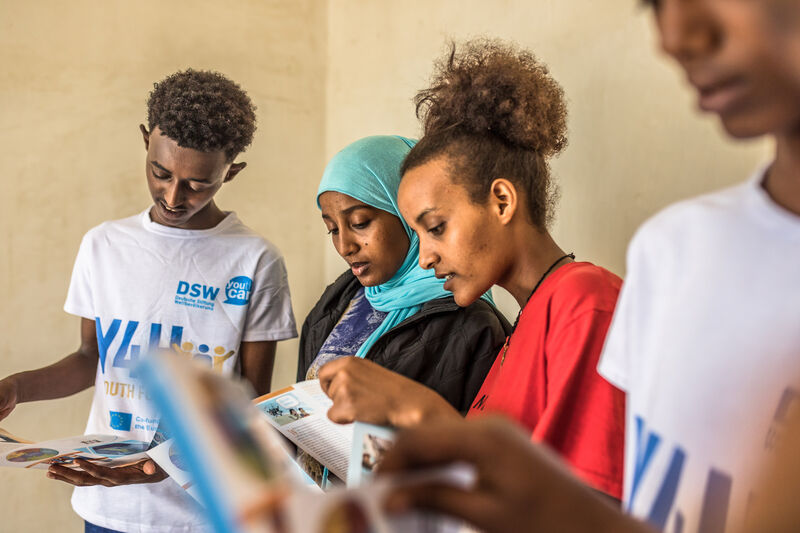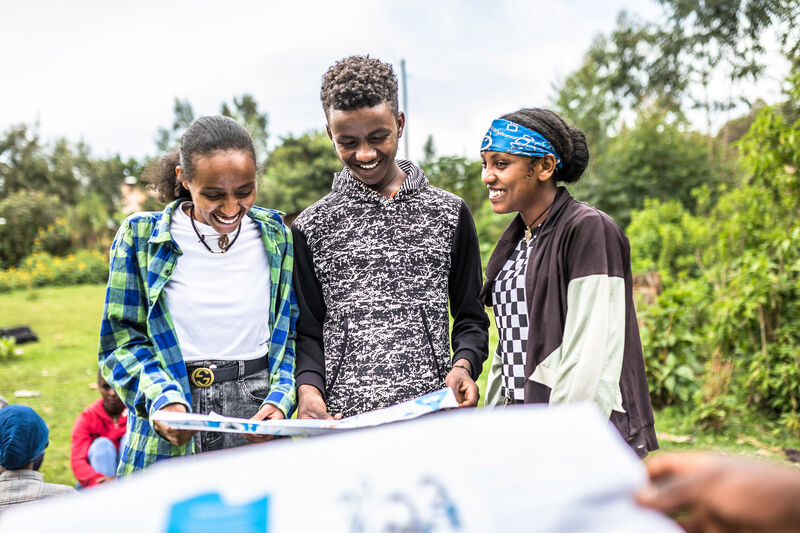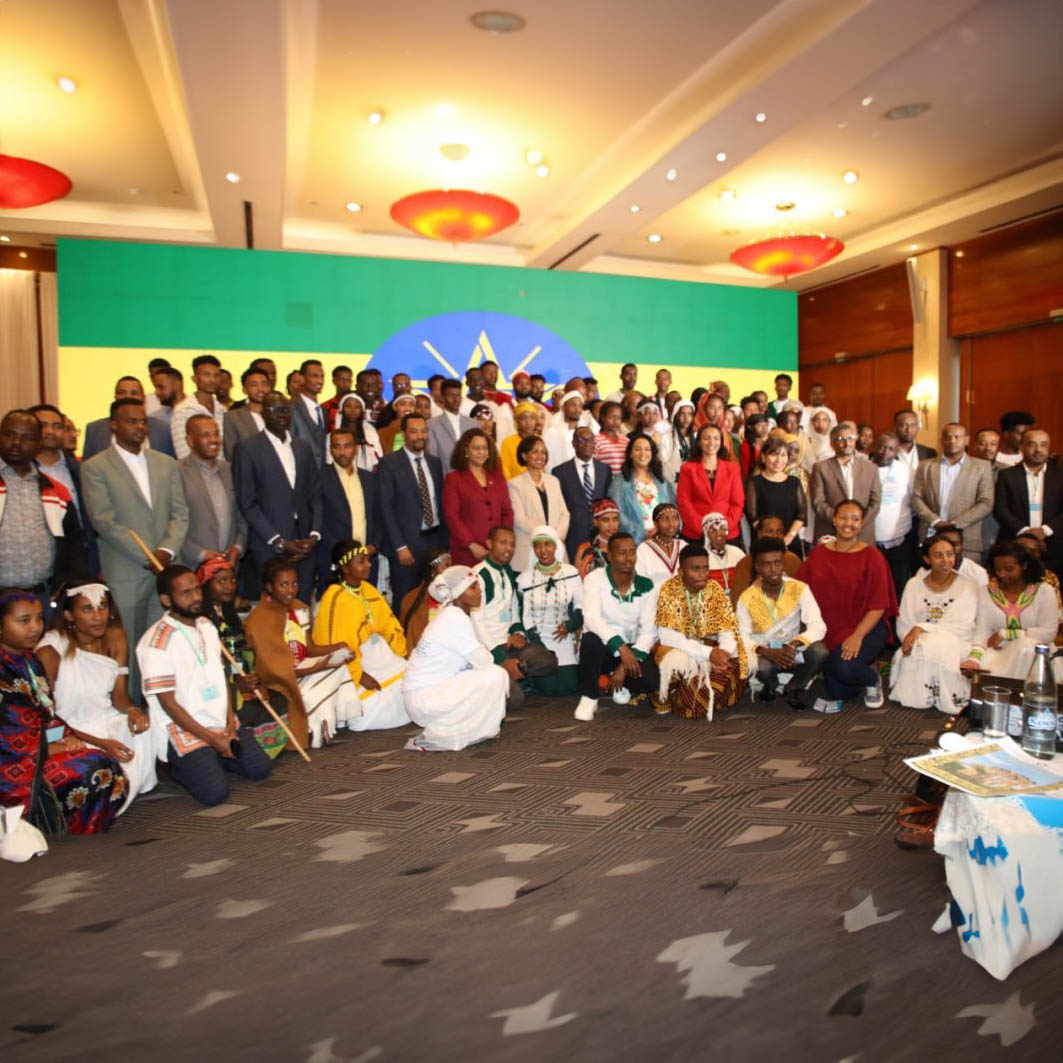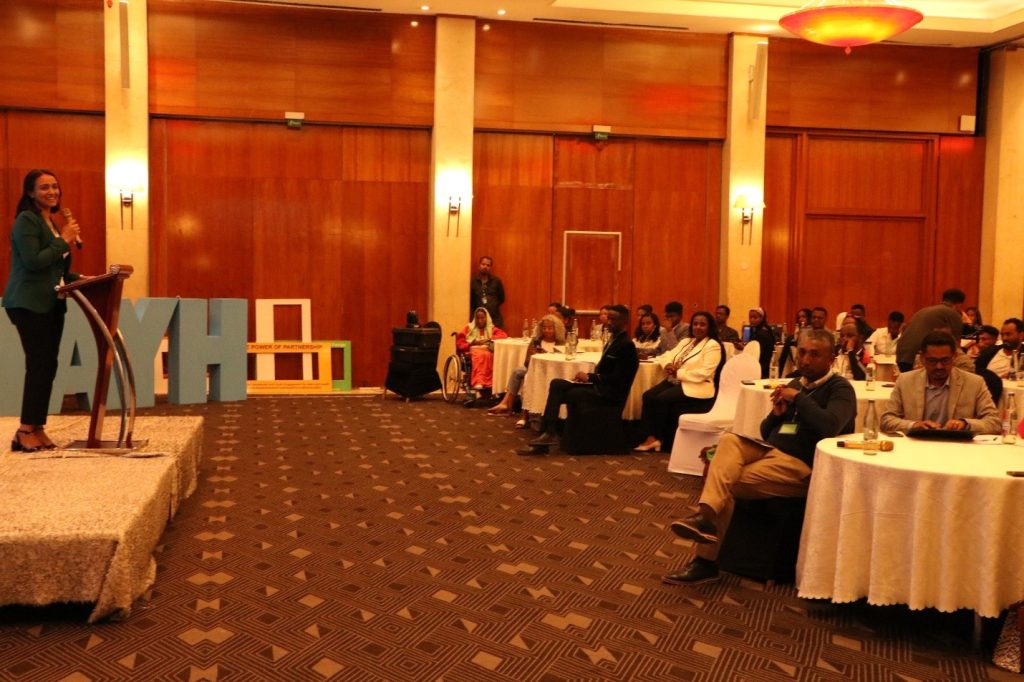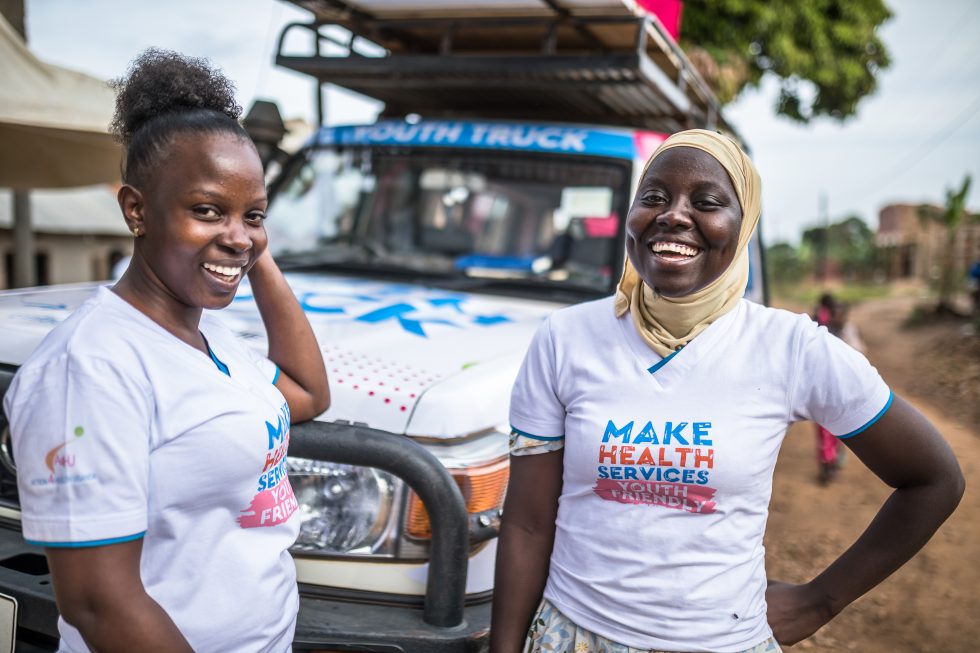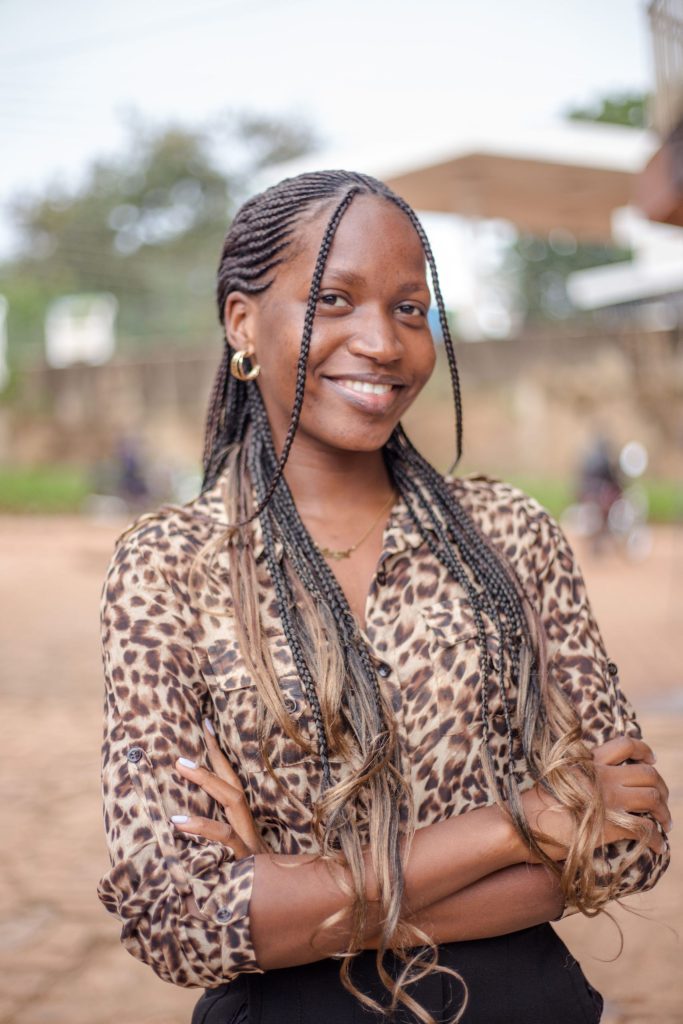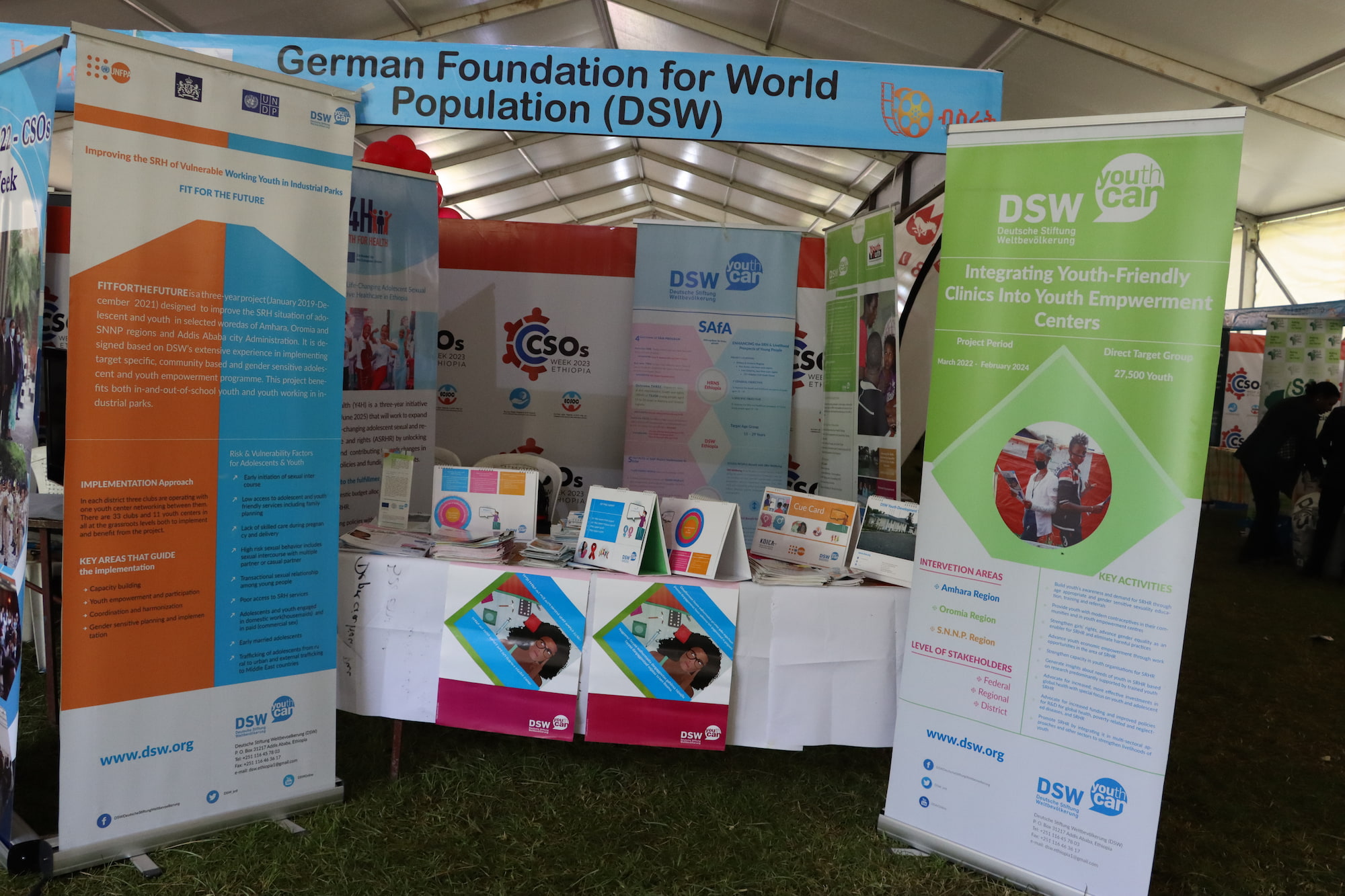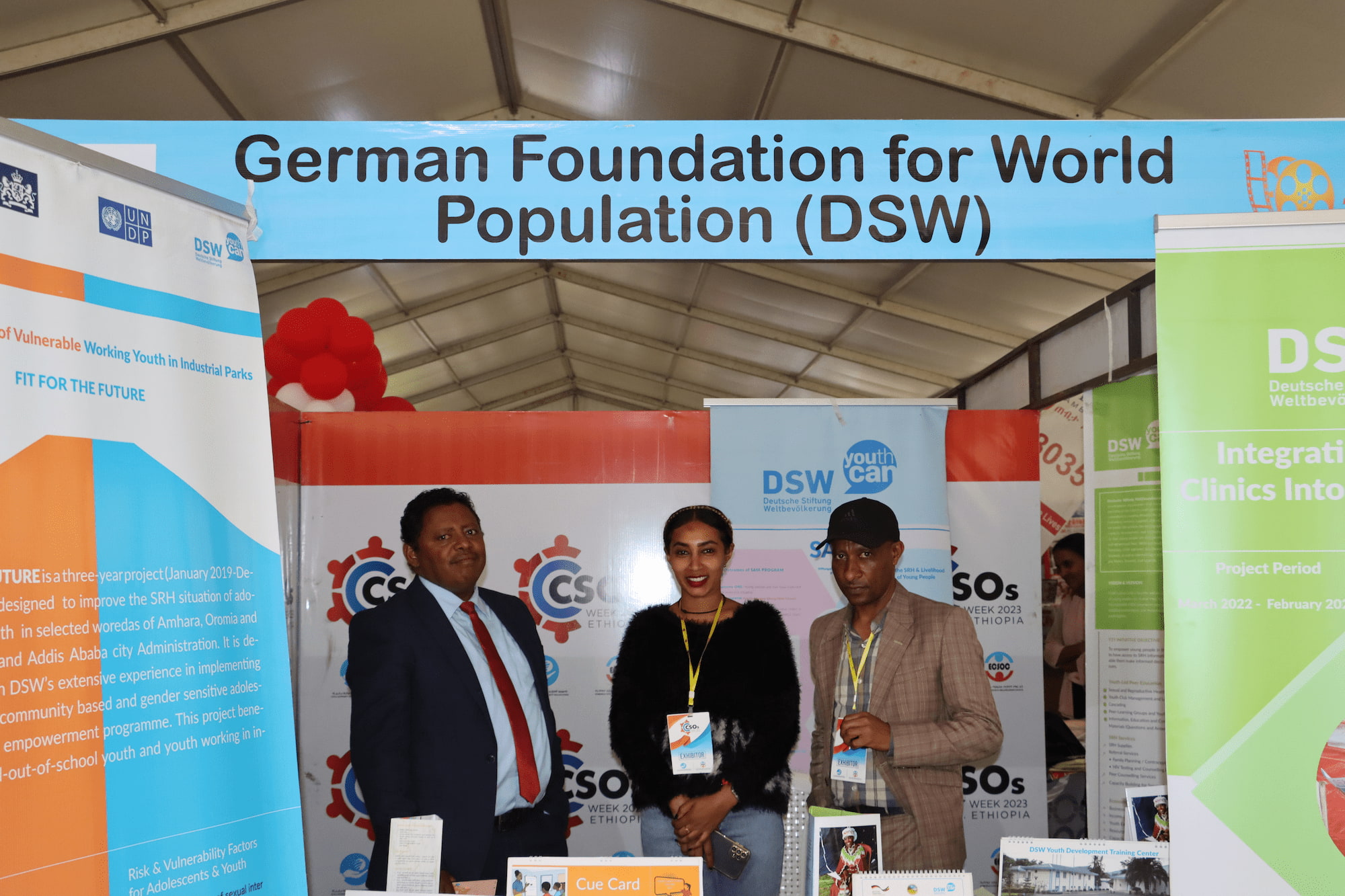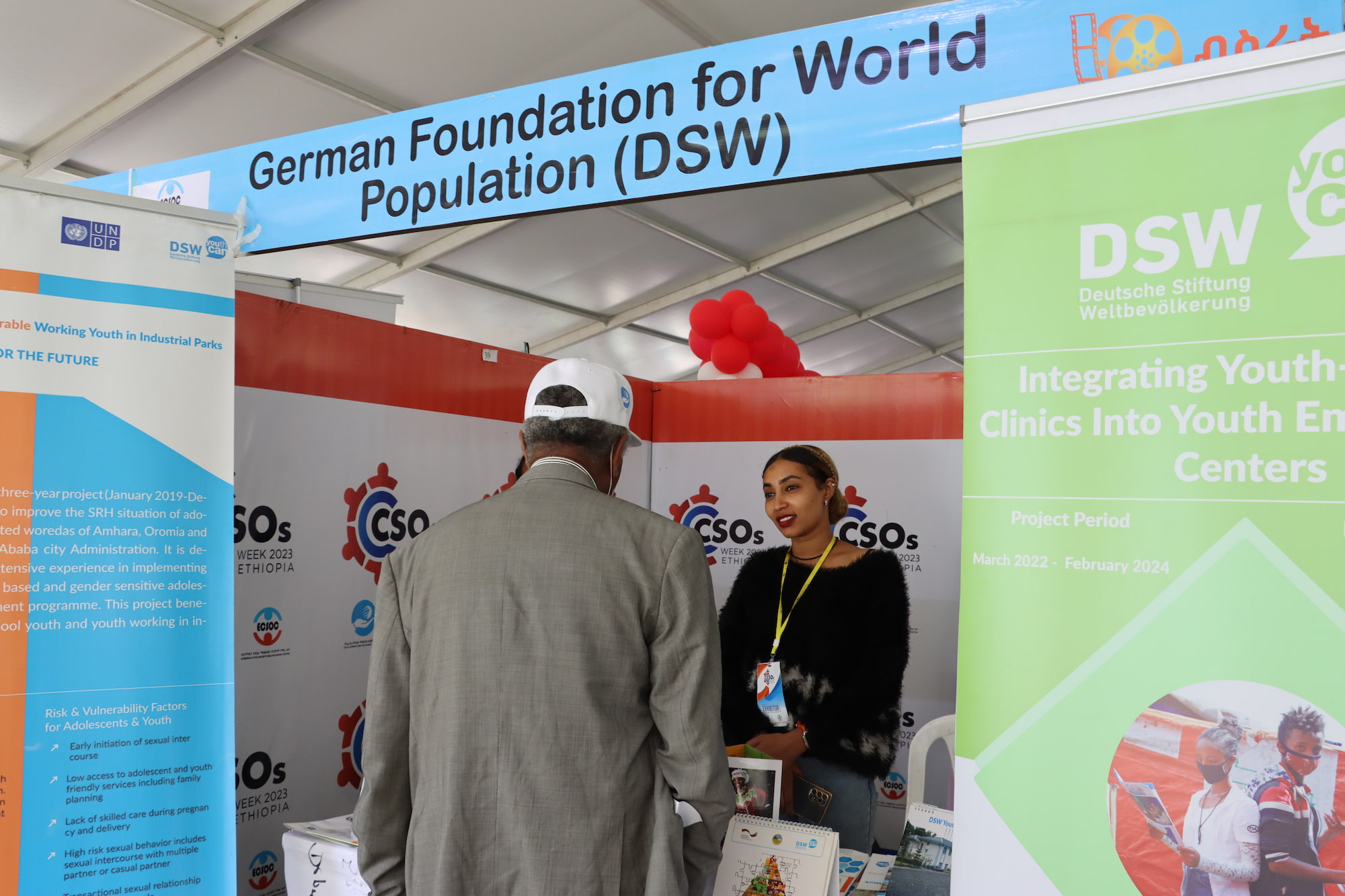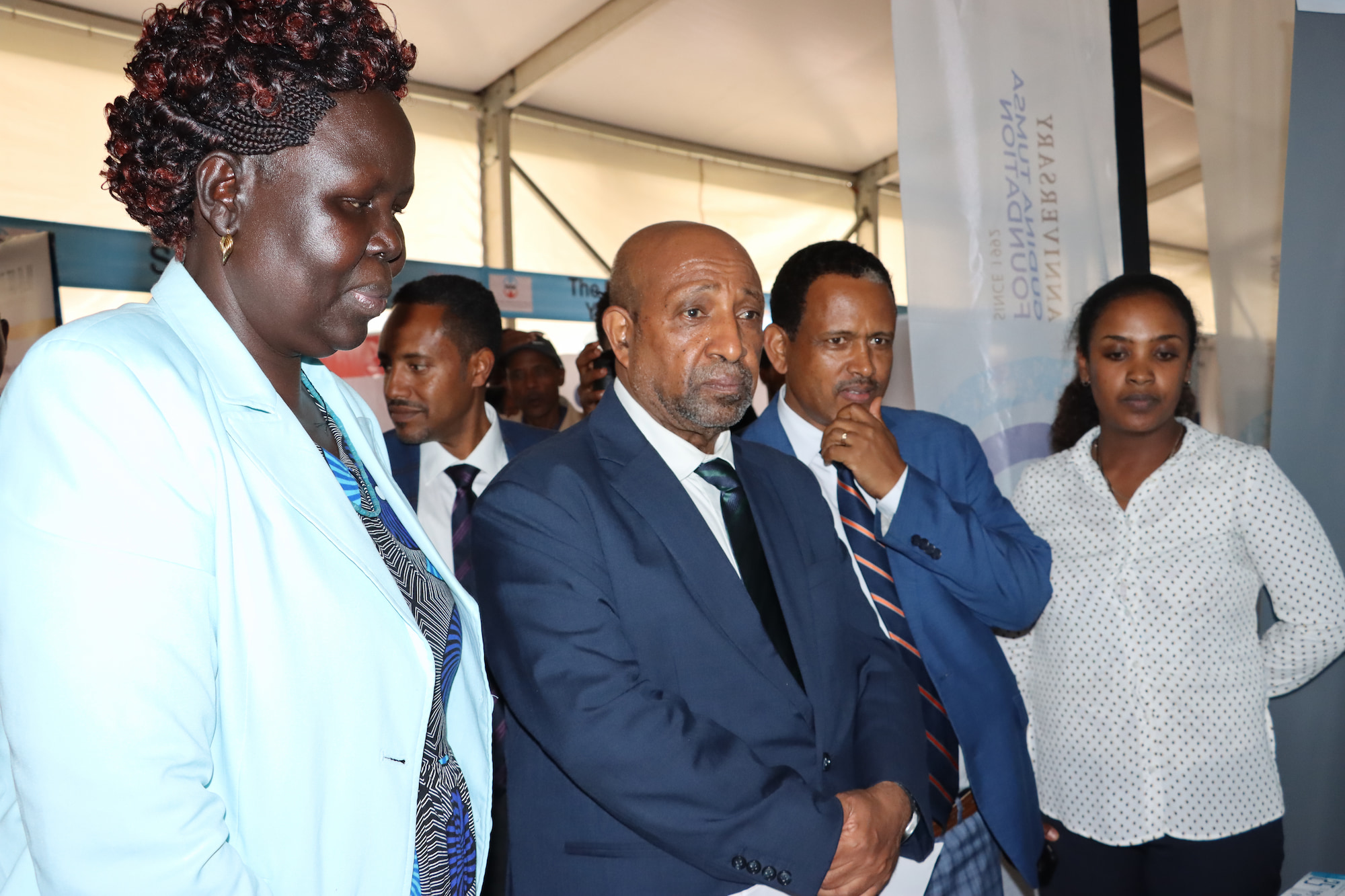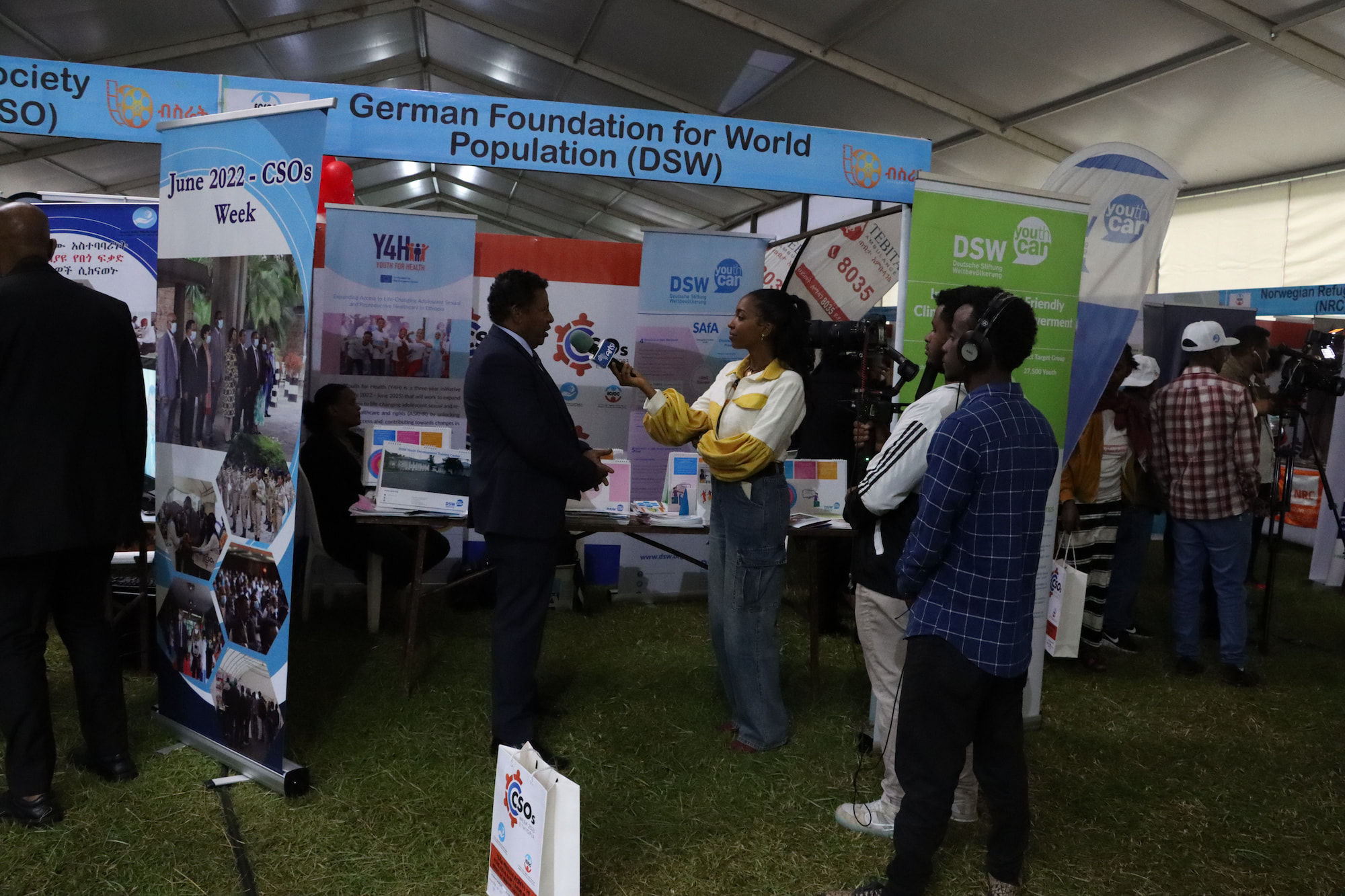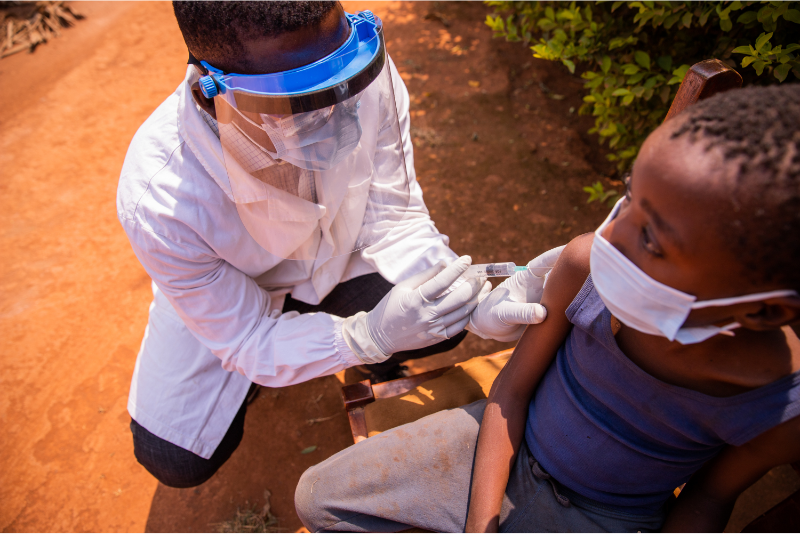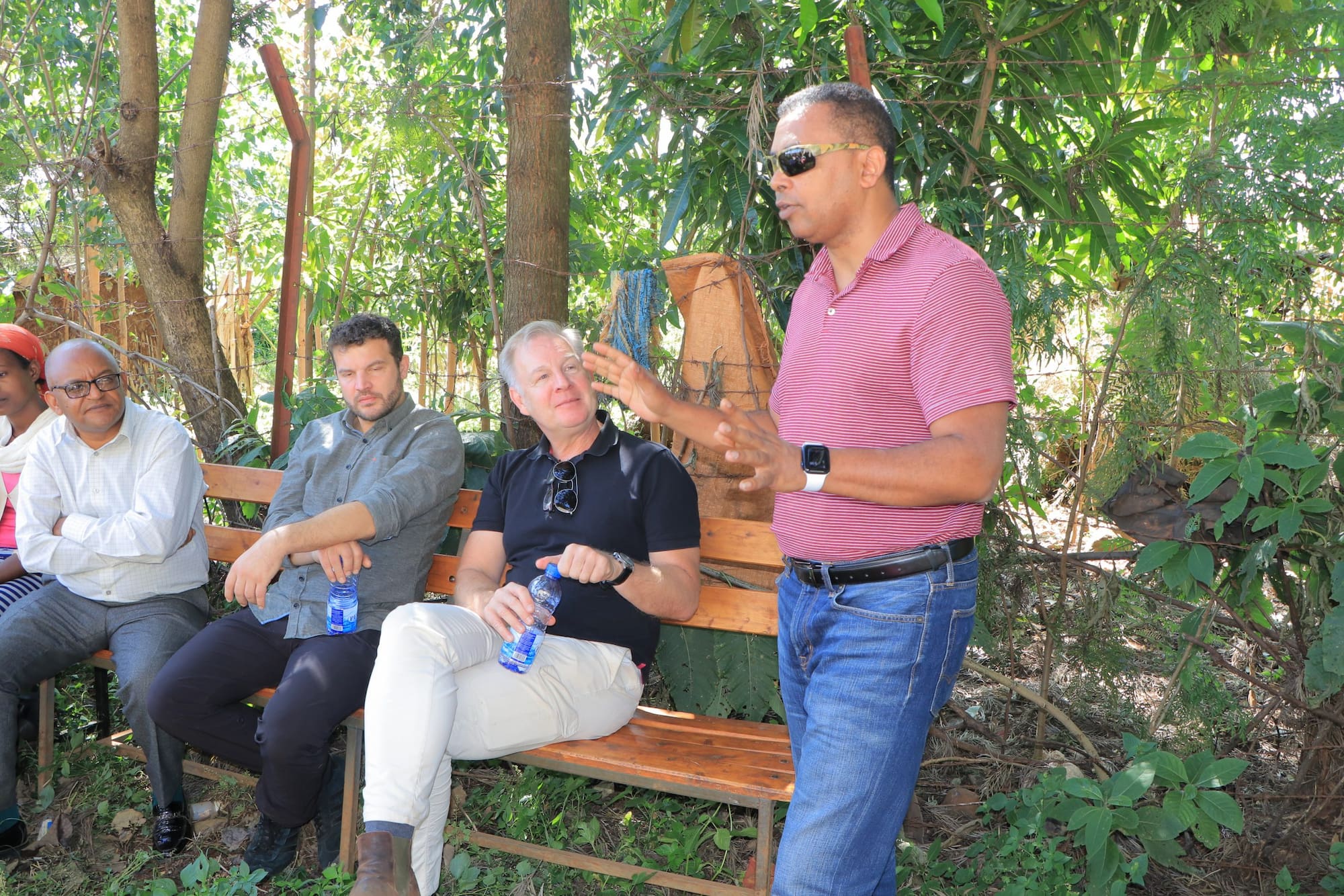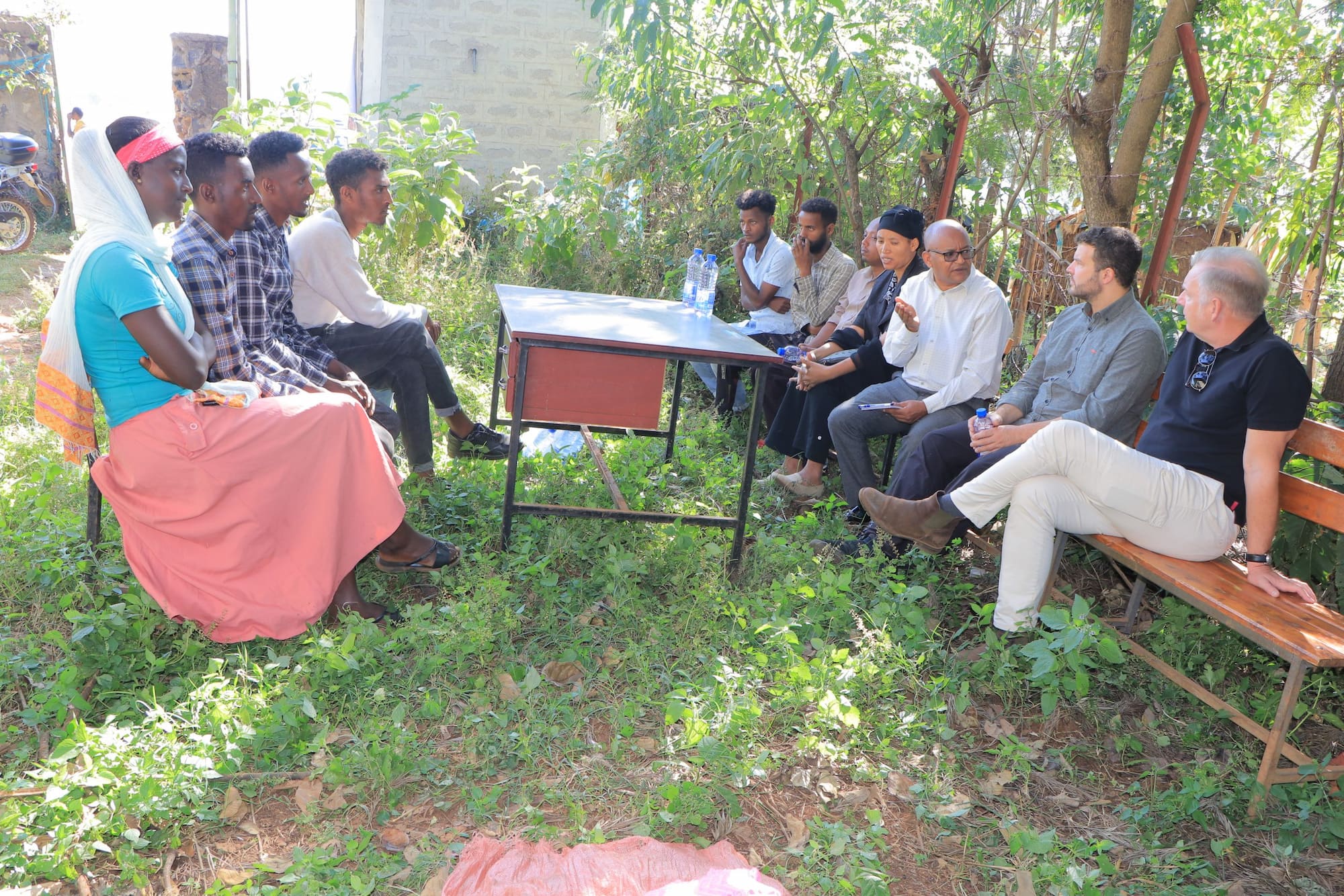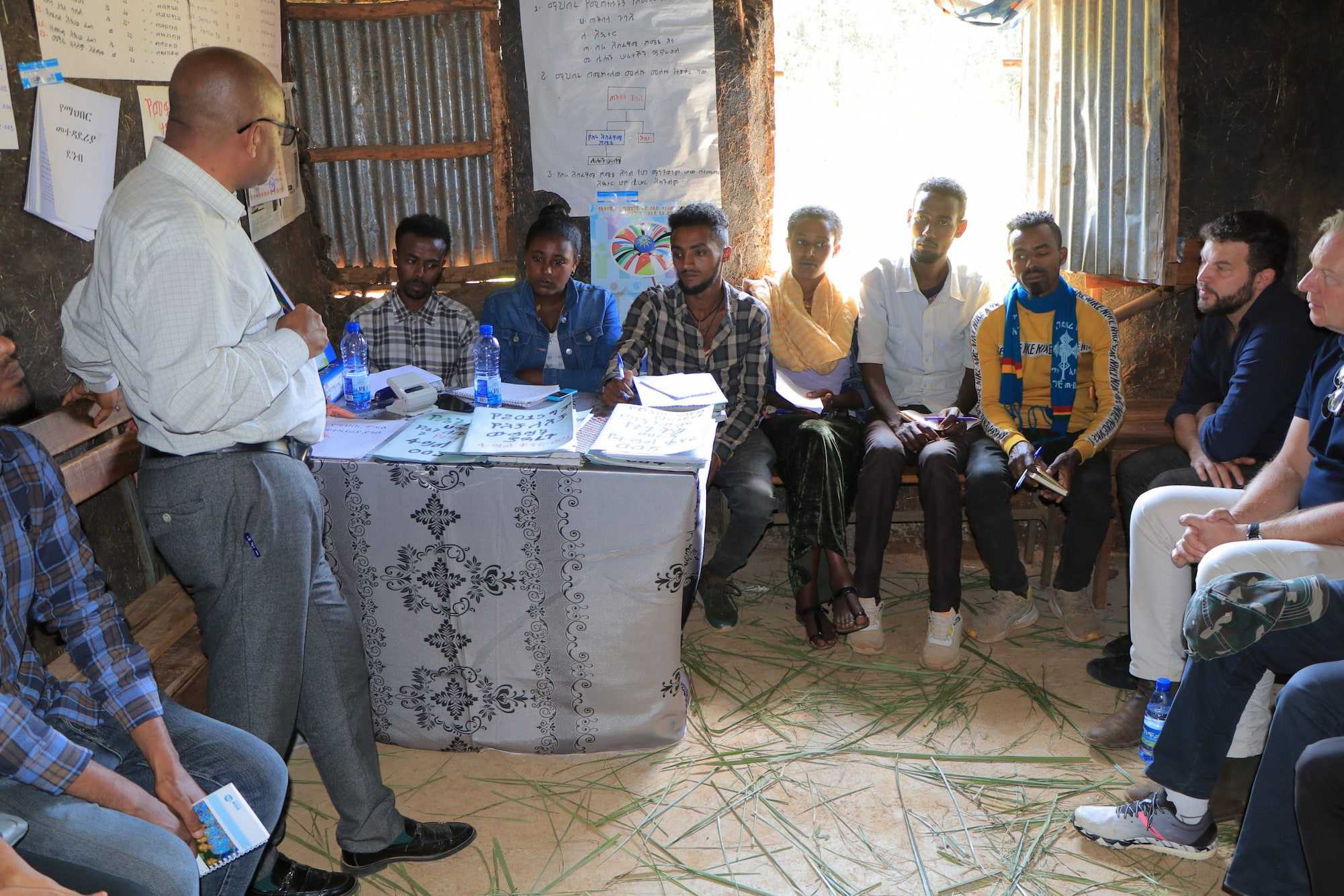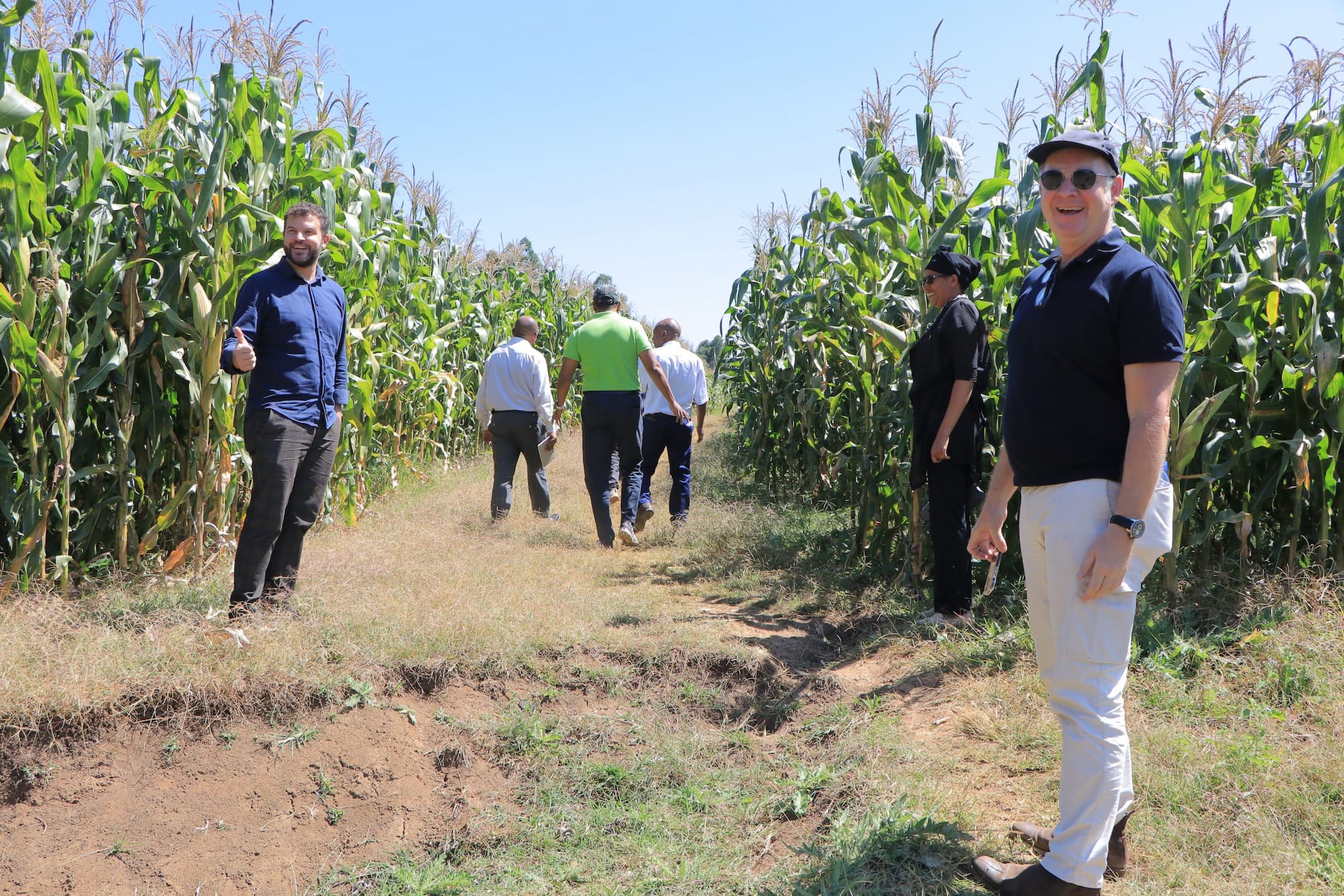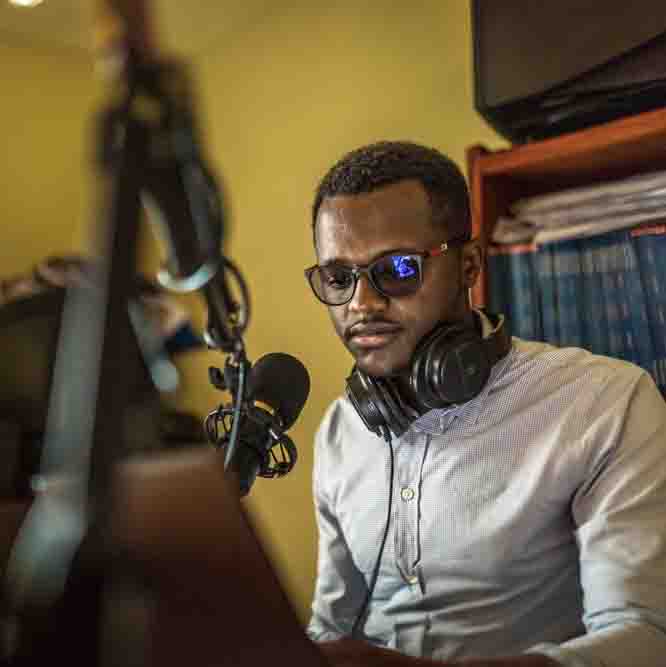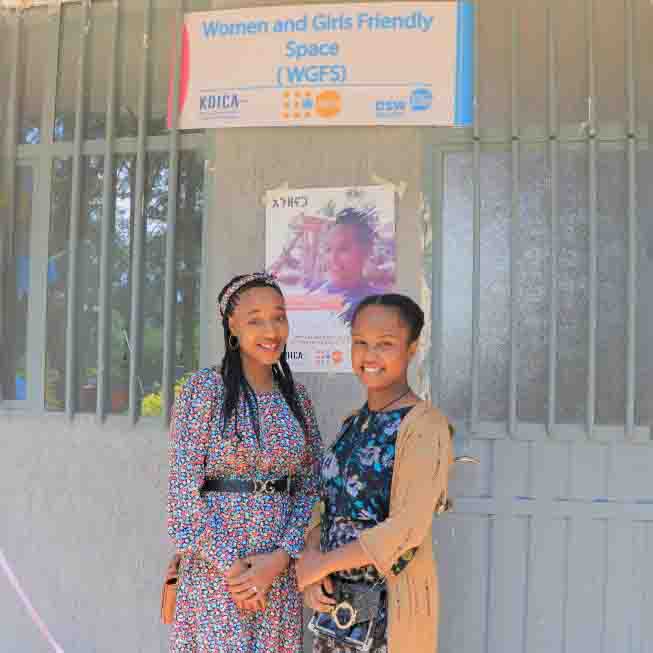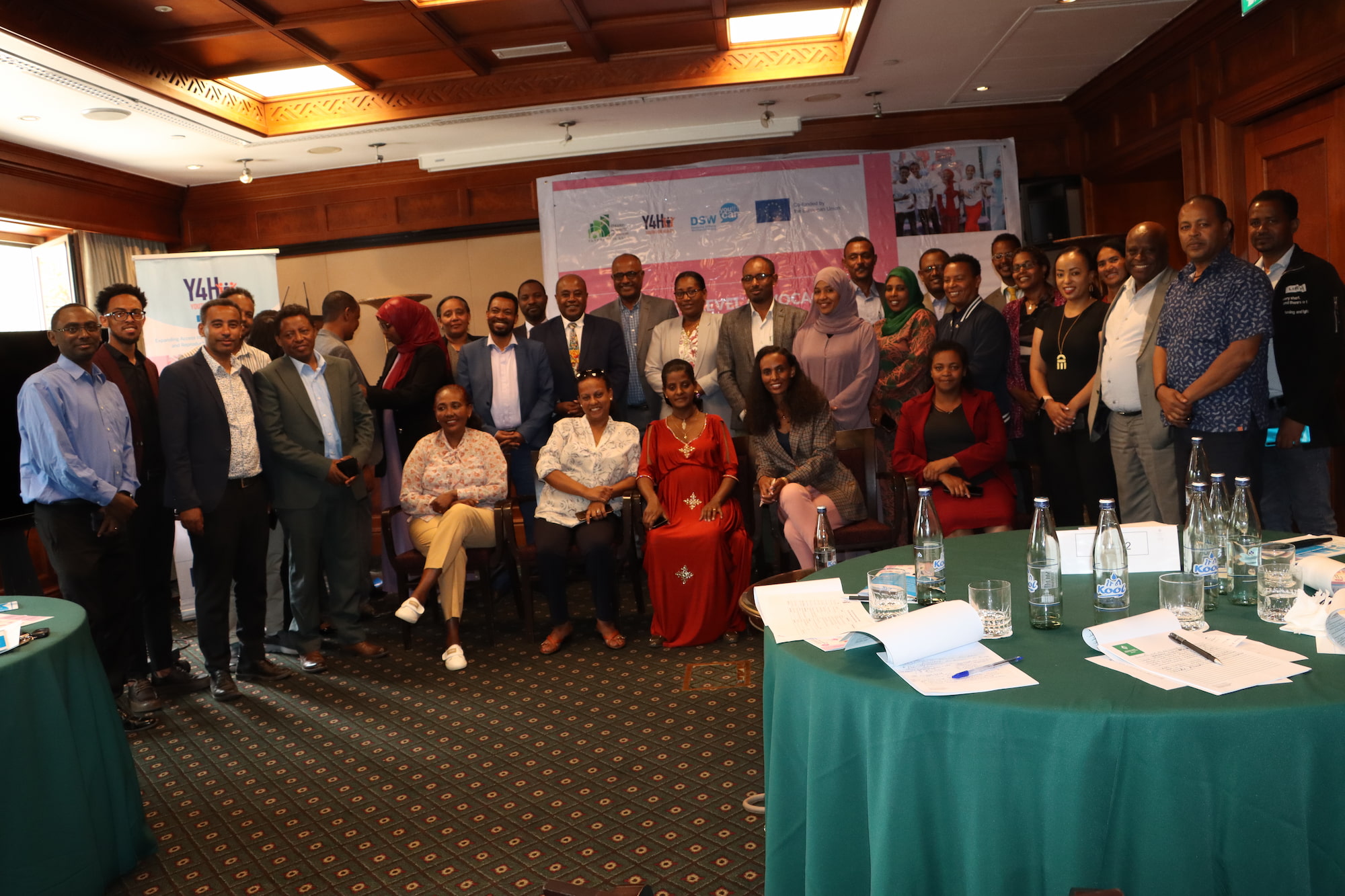

DSW Ethiopia Hosts Parliamentarians to Advocate for ASRH Budget Allocation
As evidence of growing unmet adolescent sexual and reproductive health (ASRH) needs has become more apparent, major international sources of budget support for the health sector in Ethiopia have tended to decline. In order to address these potential shortfalls by advocating for an increased ASRH budget allocation from the public funds, DSW Ethiopia partnered with the Ethiopian Academy of Sciences (EAS) and jointly convened a half-day advocacy workshop at the Sheraton Addis on 23 March 2024 to discuss with nineteen lawmakers from the Federal Parliament, and a dozen other stakeholders including Ministry of Health (MoH) officials, donor representatives and partner organisations.
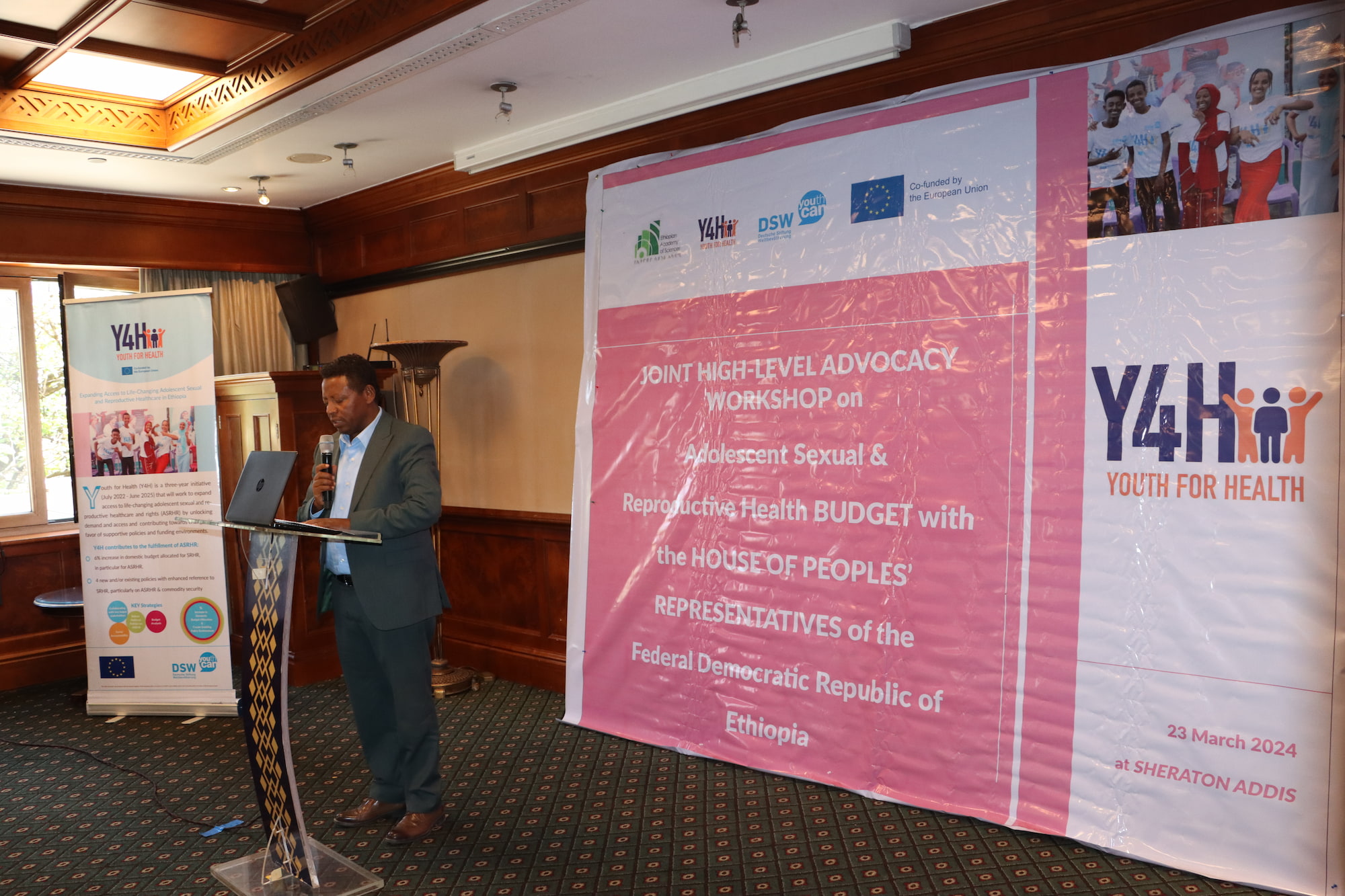
A four-member DSW team in coordination with the EAS representatives organised the tightly scheduled procedures that commenced with Feyera Assefa’s, Country Director of DSW Ethiopia, opening speech. Feyera appreciated some of the steady increases made by the government in the domestic budget allocation for SRH provision eying at the 15 percent benchmark set by the Abuja Declaration (2001) that has meant to enhance the annual budget for health sector in Africa utilizing the domestic resources. Feyera further expressed concern on the current seven percent in budget allotment dropping from the nine percent peak in the previous years. Noting that, “If we set our eyes at the window of opportunity to reap from the potential demographic dividend in some future time, let’s not loosen the grip on our determination to ensure today’s adolescents have met their SRH needs by way of increasing the annual budget allocation and set the budget line specific to ASRH for better organised budget tracking as we could explore into an existing practice for experience sharing,” Feyera reasserted the core objectives of the workshop.
“To be more explicit,” Feyera further elaborated that “our objective is driven by the virtue of the general fact that for the first time in many years in our history adolescents and youth have become the most numerically dominate demographic group in Ethiopia. In the absence of a prioritised action to improve the budget appropriation for ASRH, the likelihood of social and economic consequences would be a matter of when rather than if. On behalf of DSW, I urge the respected members of the parliament to honor our call to a research-based action appropriate to the weight of the matter.”
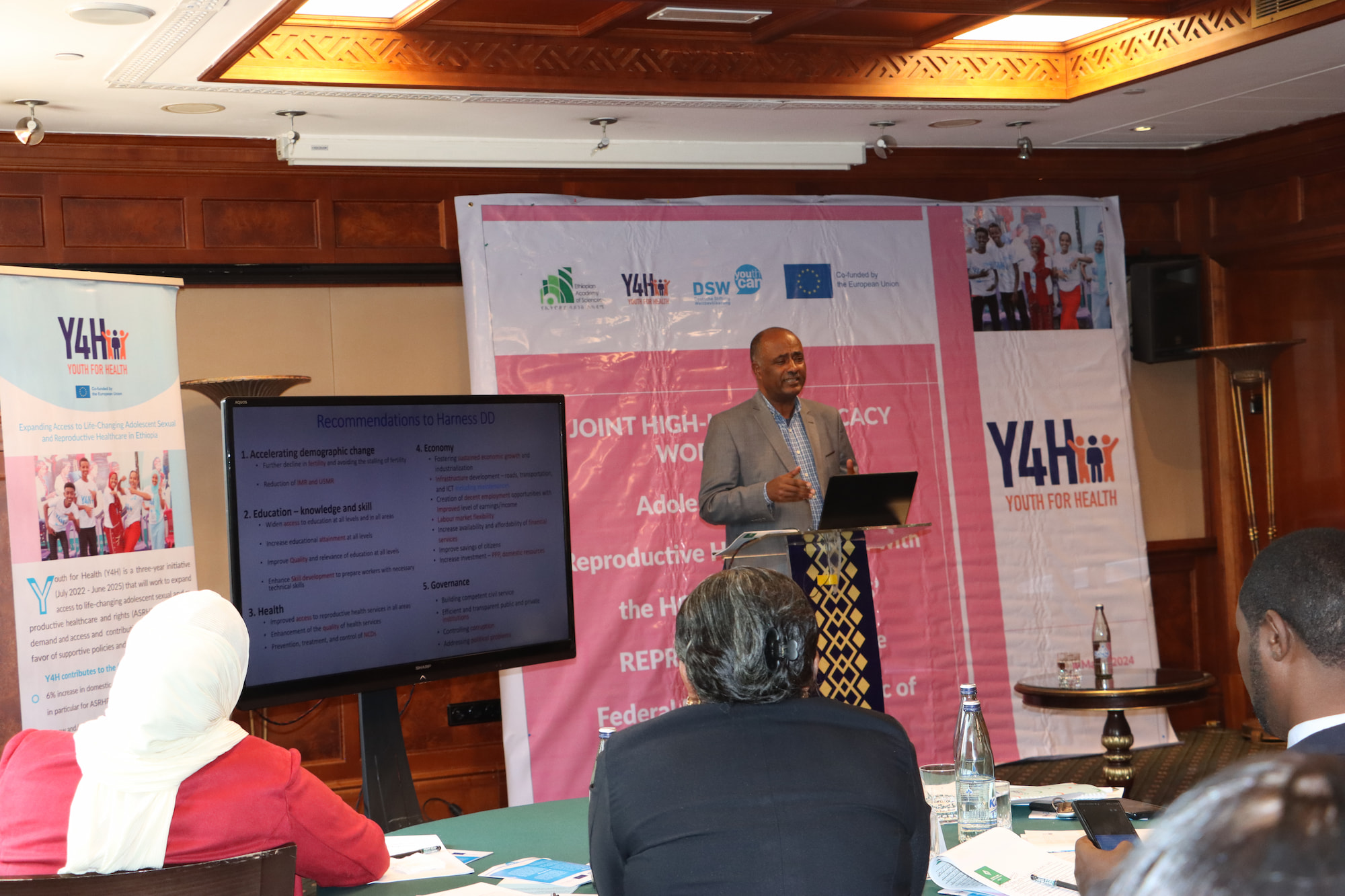
The 2001 African Union’s Summit in Nigeria’s capital drew consensual commitments from member states to honor a minimum of 15 percent of annual budget expenditure in enhancing the health sector under the “Abuja Declaration”. This summit was widely seen as the catalytic accelerator toward attaining one of the key U.N’s Sustainable Development Goals (SDGs). In his presentation, a tenured professor from the Addis Ababa University, Eshetu Gurmu put into context the links between population, demographic dividends and an increased budget allocation for ASRH. “Every year more than three million young people in Ethiopia enter the workforce or are expected to do so and the intervention in their SRH needs during adolescence contributes to enhanced productivity in terms of impacting on economic growth. If left unattended due to lack of budget appropriation in ASRH needs, by sheer size of the youth’s demographic segment in population development, the much heralded dividend and the so-called window of opportunity could bypass us in defiance against our common good,” Professor Eshetu forewarned, as he alluded to the torpedo nature of the youth bulge in the case of Haiti.
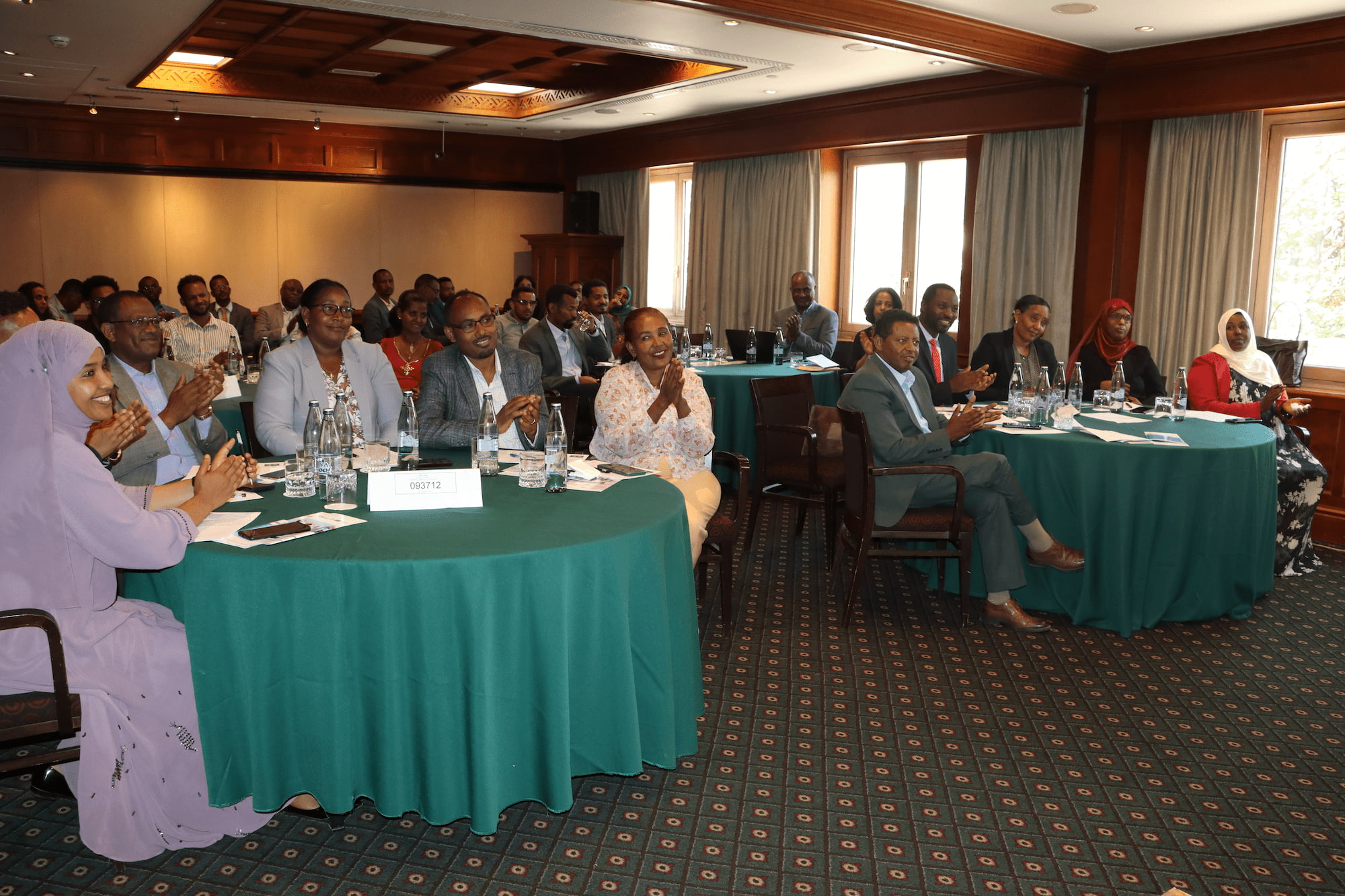
Recent data obtained from the Population Reference Bureau could not be less alarming as the growing youth population in Ethiopia under the age of 30 stands at nearly 71 percent. The number of adolescents under the age of 15 is 41 percent. With its current 126 million population, Ethiopia’s contribution to the global share of population growth stands at 1.57 percent (worldometer, 2023) and it still maintains a total fertility rate of 4.0 live births per woman, well above the 2.1 value threshold of replacement level fertility.. Judging from the 2021 World Bank report, the decline in fertility rate over the past thirty years declined from 7.2 in 1990 to 4.2 in 2021.
“Evidence based hybrid policy concepts were and are still developed in a range of multidisciplinary scientific fields most importantly on national development issues, including the population and health related topics at the Ethiopian Academy of Sciences,” noted Professor Teketel Yohannes, the incumbent Executive Director of the Academy, which was established as a non-governmental organisation (NGO) in 2010 under the auspices of the Ethiopian Parliament. “We have important stakes in the development of national policies in the context of playing a lead role on the well-meaning sciences and researches in collaboration with the law makers and policy implementers as well as other stakeholders among them includes DSW,” in his keynote address Professor Teketel emphasised the strategic direction that EAS takes to collaborate with public and private sectors alike.
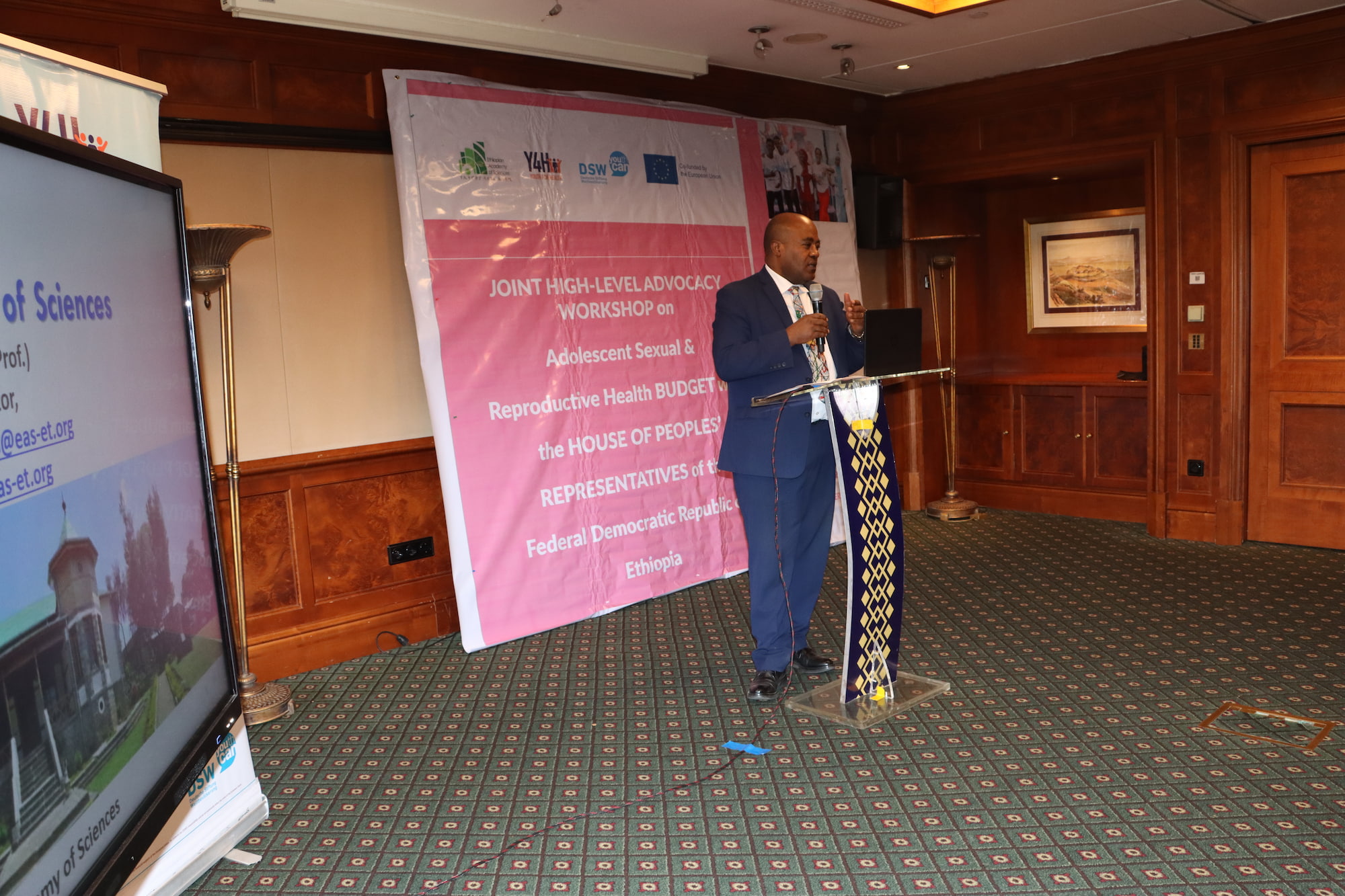
On his part, Dr. Jemal Adem, Financing Technical Advisor with the Ministry of Health, recounted “the 2016 budgetary support leveraged from international donors for the SRH/family planning provisions amounted to 100 million birr expenditure. Since then, the decline of financing the health sector from international sources ostensibly led to grow nearly threefold in domestic source of financing the SRH/FP commodities. Generally, Ethiopia has already committed 1.3 percent of its GDP to the share of the health sector expenditure,” Dr. Jemal said.
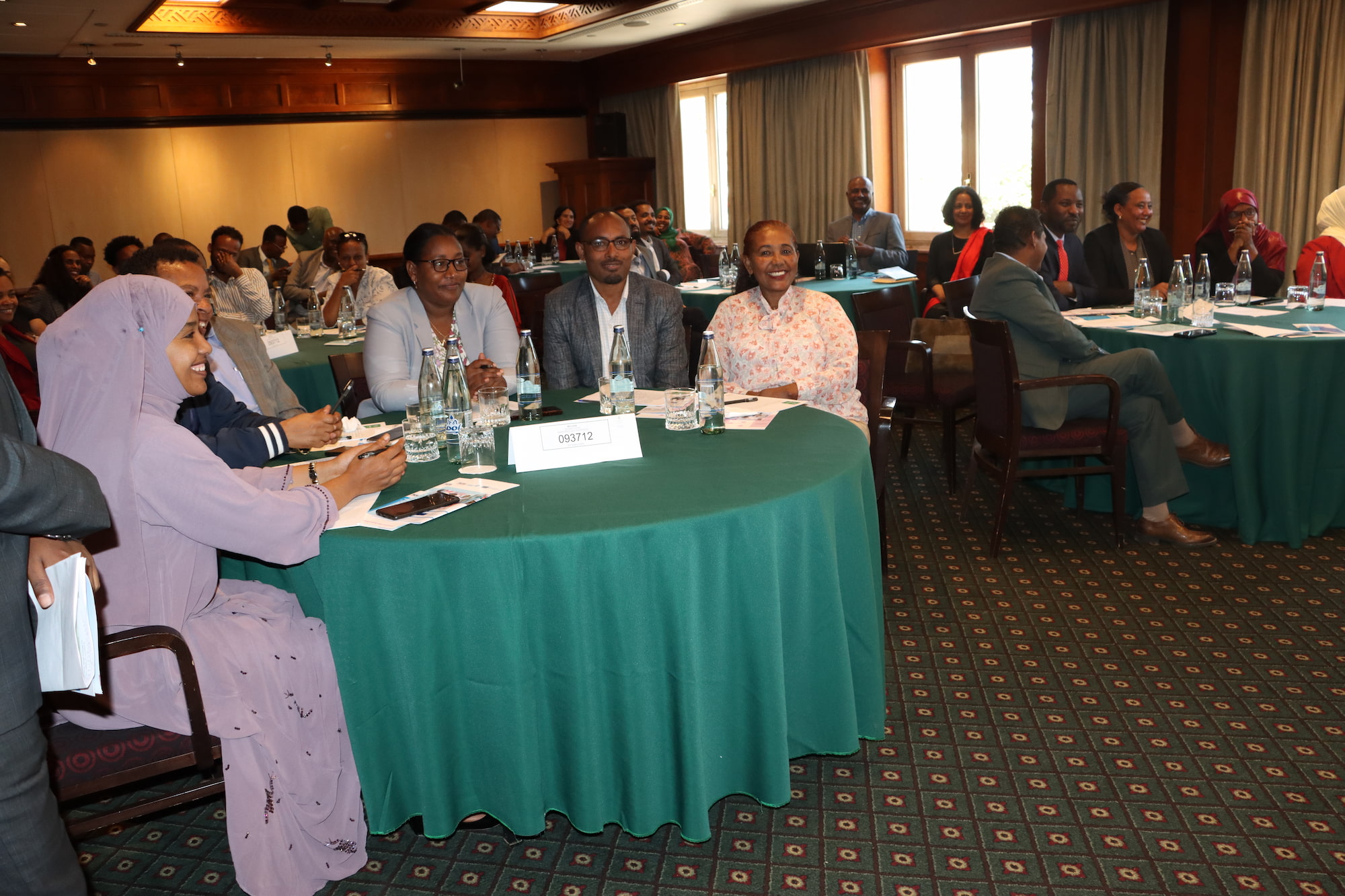
“Expending 1.3 percent of the GDP in health sector budget may not sound bad as such, given the circumstance that Ethiopia is being hard put to it, however, in a country where 13 percent of teenage pregnancy goes without being prevented each year against the odds of growing needs for SRH provision among adolescents, how would we ever be able to catch up with the SGD’s momentum in less than six years, come 2030. As DSW, our advocacy efforts to sit with the Parliamentarians are essentially built upon the intent to address the identified shortcomings in budgetary appropriation over the adolescent sexual and reproductive health needs,” asserted Tsigie Gebretsadik,” DSW Ethiopia’s Resource Mobilization and Advocacy Manager.
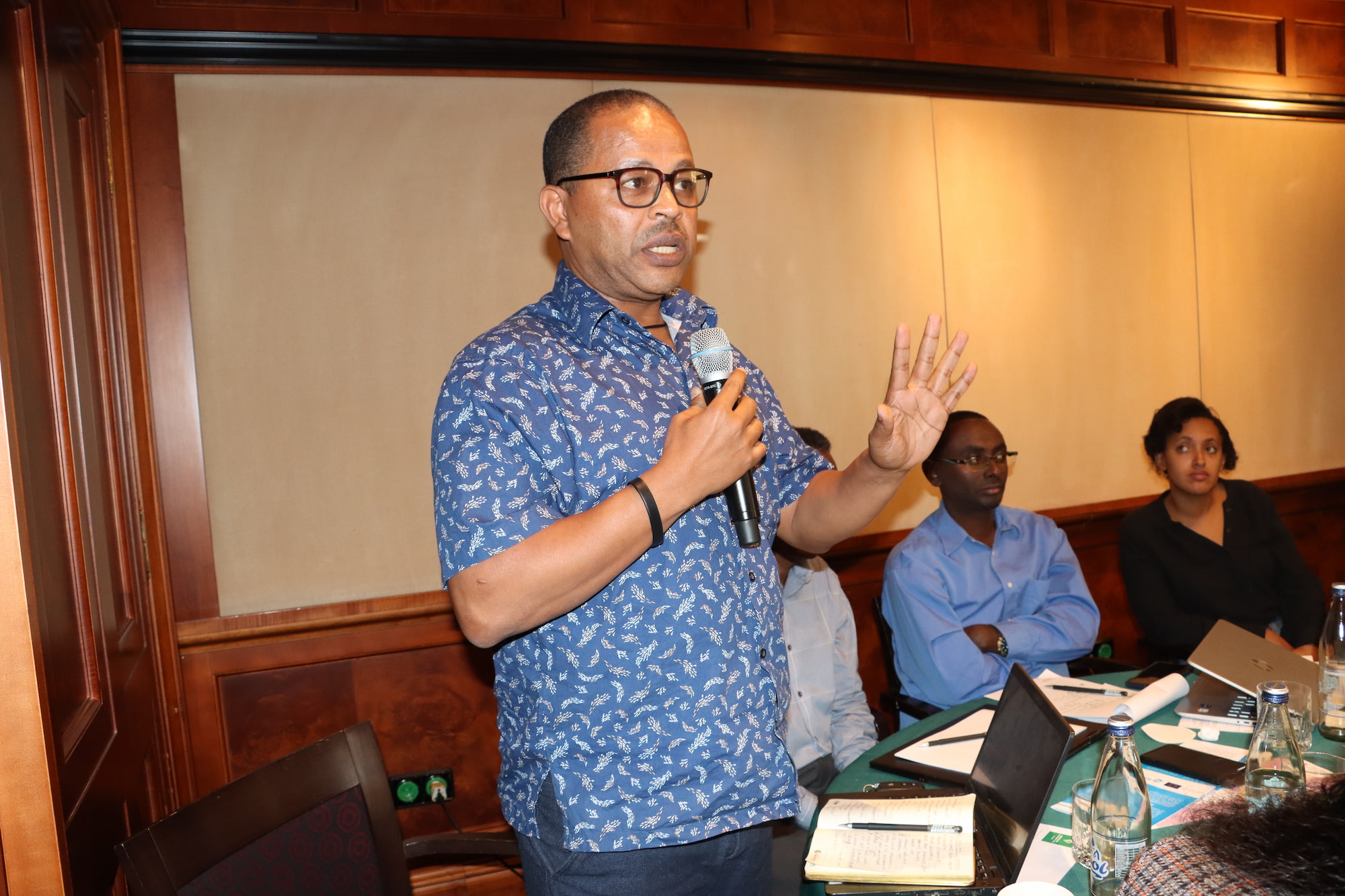
In a concluding remark, Dr. Alemayehu Hunduma of the Federal Ministry of Health acknowledged the unreserved commitment shown by the strong members of the House of Peoples’ Representatives to sit with various stakeholders and discuss the health budget issues. “We at the Ministry of Health appreciate this development and also as policy implementers, we are pleased to find a common platform for advancing our common causes. High-level advocacy meetings like this always have a widespread impact on desirable changes in budget. The MoH has come a long way to increase the expenditure for SRH/FP services this fiscal year, which has grown to 275 million birr up from 100 million birr allocated for the same item during our last year’s budget. Let’s get our efforts together in partnerships and maintain the momentum of successes. DSW and EAS have played important roles to bear the lion’s share of acknowledgement in coordinating and leading this successful meeting,” Dr. Alemayehu remarked.
Youth for Health is an advocacy-based intervention engaging stakeholders at national, regional and local level through sensitisation workshops and consultative meetings to impact on the adolescent sexual and reproductive health budget appropriation from domestic public funds.
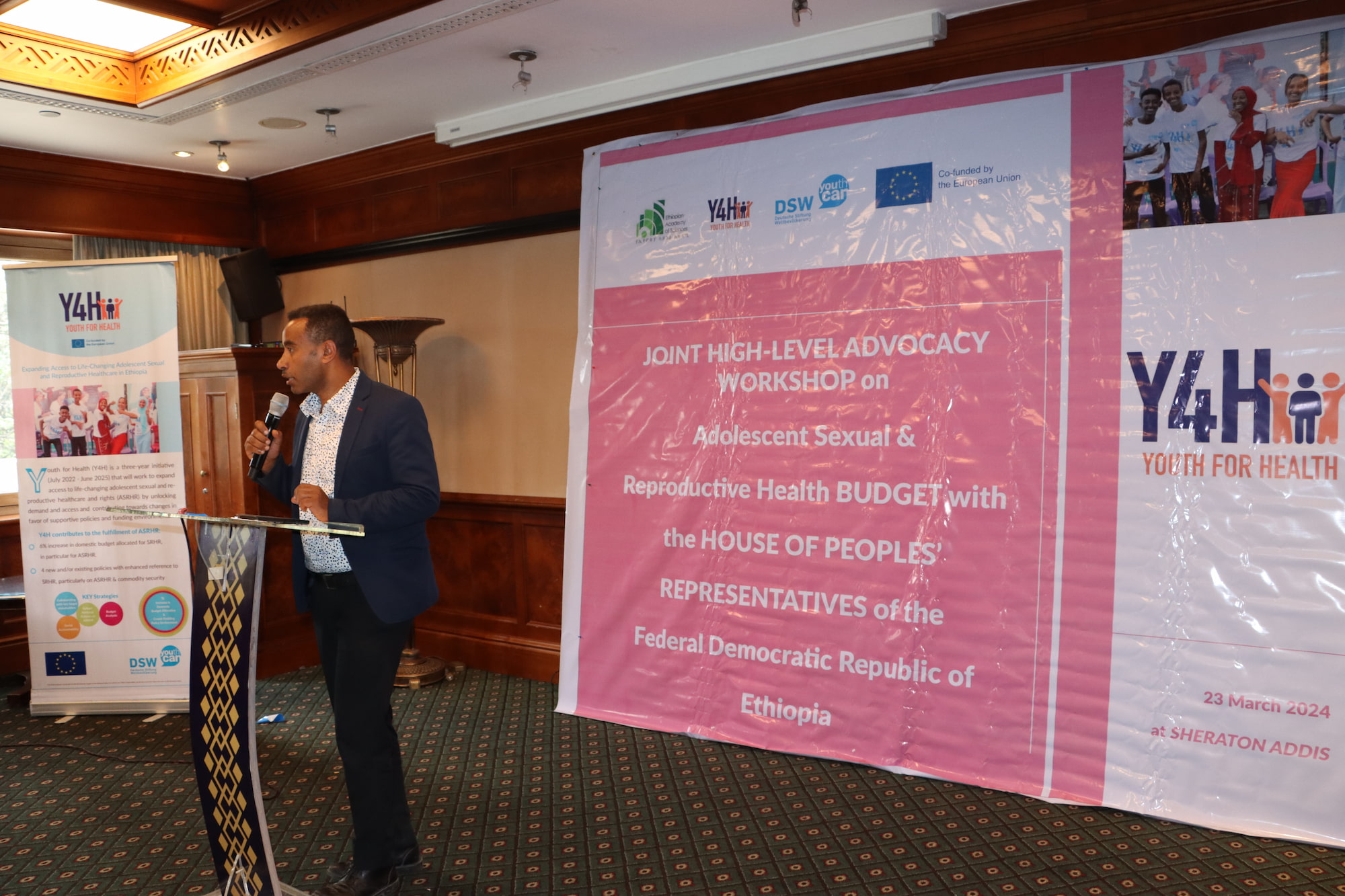
Nineteen Members of the Federal Parliament who represent as many as five standing committees expressed optimism and have appreciated the efforts to get them engaged in important issues such as advocating for ASRH budget and the budget line associated with this specific item. In their conclusive speech, each pledged to work together and further the agenda to other colleagues in the Parliament and look forward to hold a series of such consultative meeting in the future. They also showed interest in the experience sharing initiative advanced by DSW Ethiopia. DSW Ethiopia and the influential Ethiopian Academy of Sciences (EAS) uphold their synergy to explore and expand platforms for reaching out wider stakeholders.
In terms of advocacy, DSW has a long history of engagement with the parliamentarians dating as far back as the mid-2000s and earlier. It has organised week-long study tours for parliamentarians from EU member states and has held meetings and interactive roundtable discussions were held with the Speakers of both Houses of Representatives in Ethiopia in the past.
